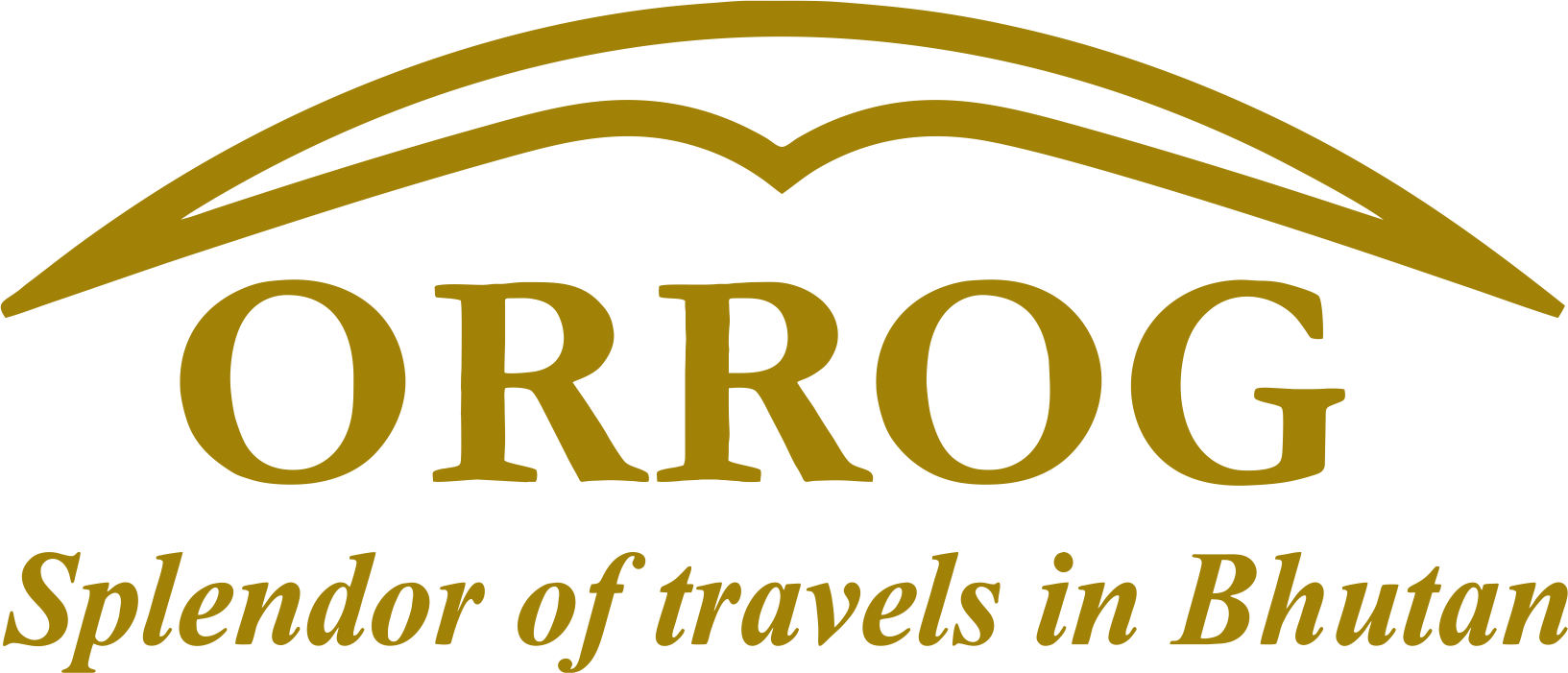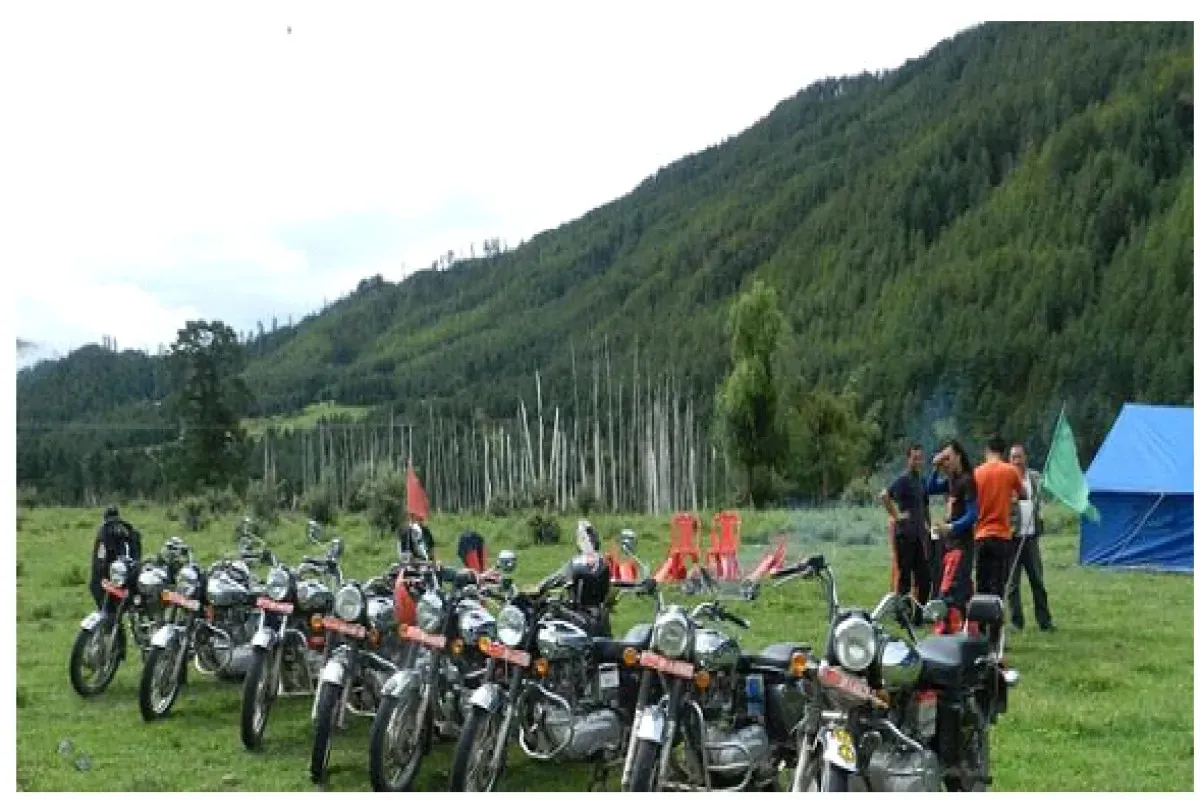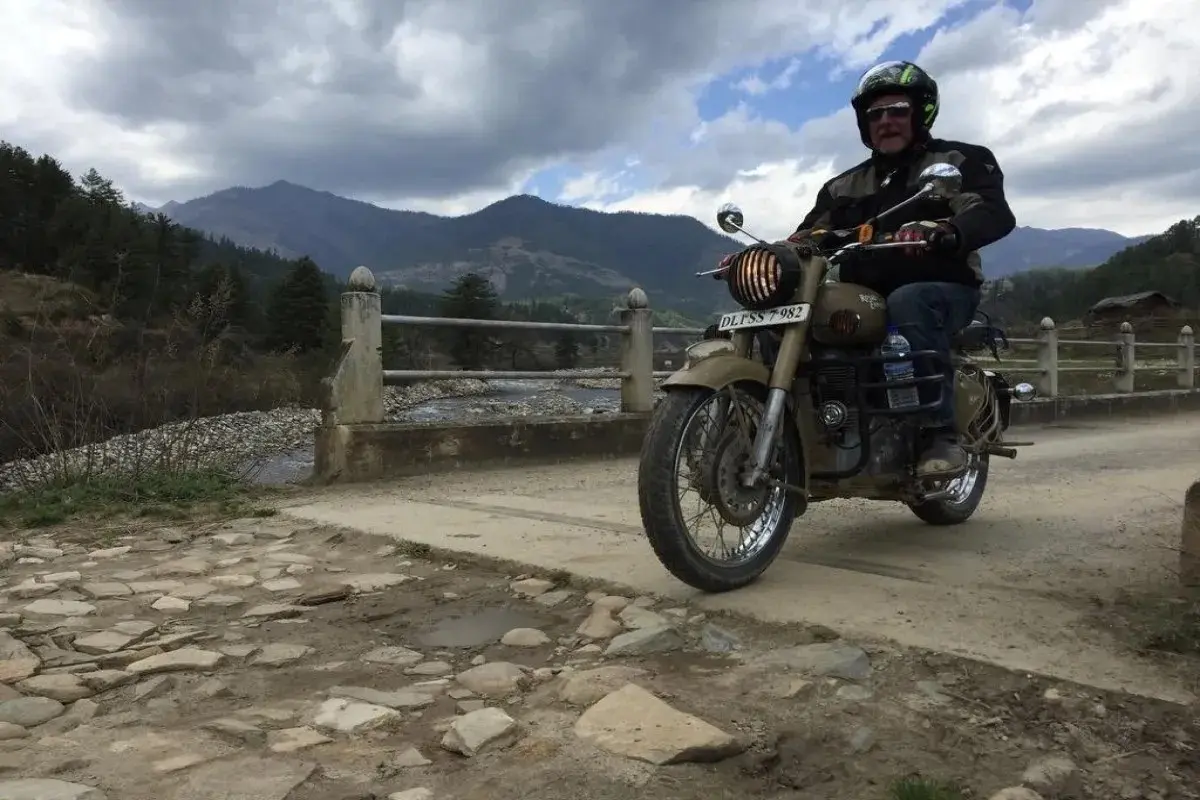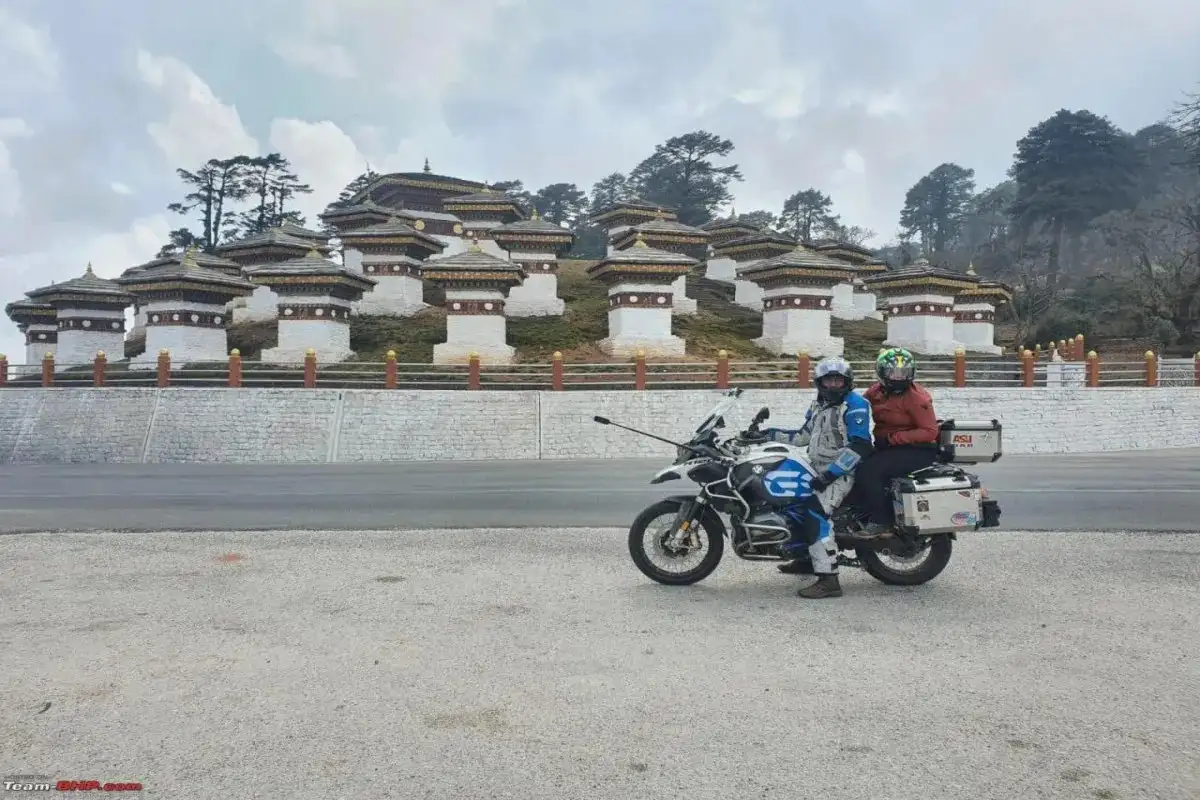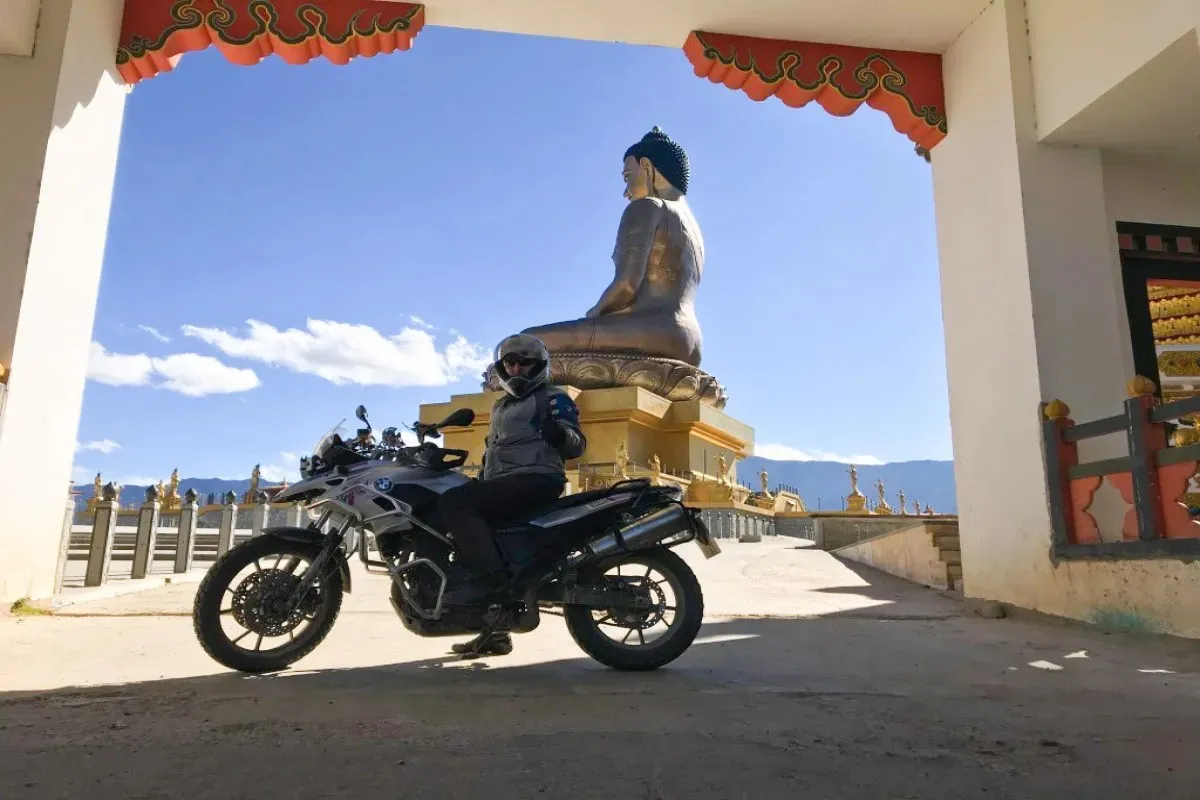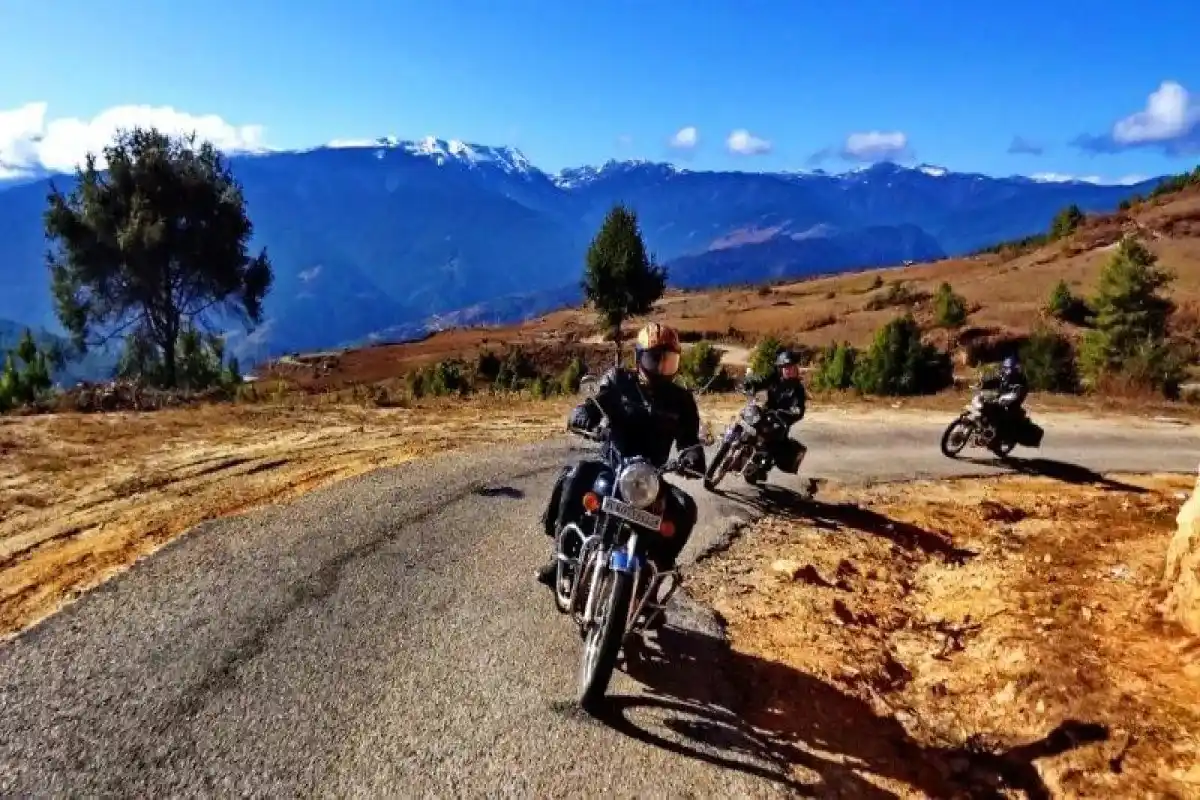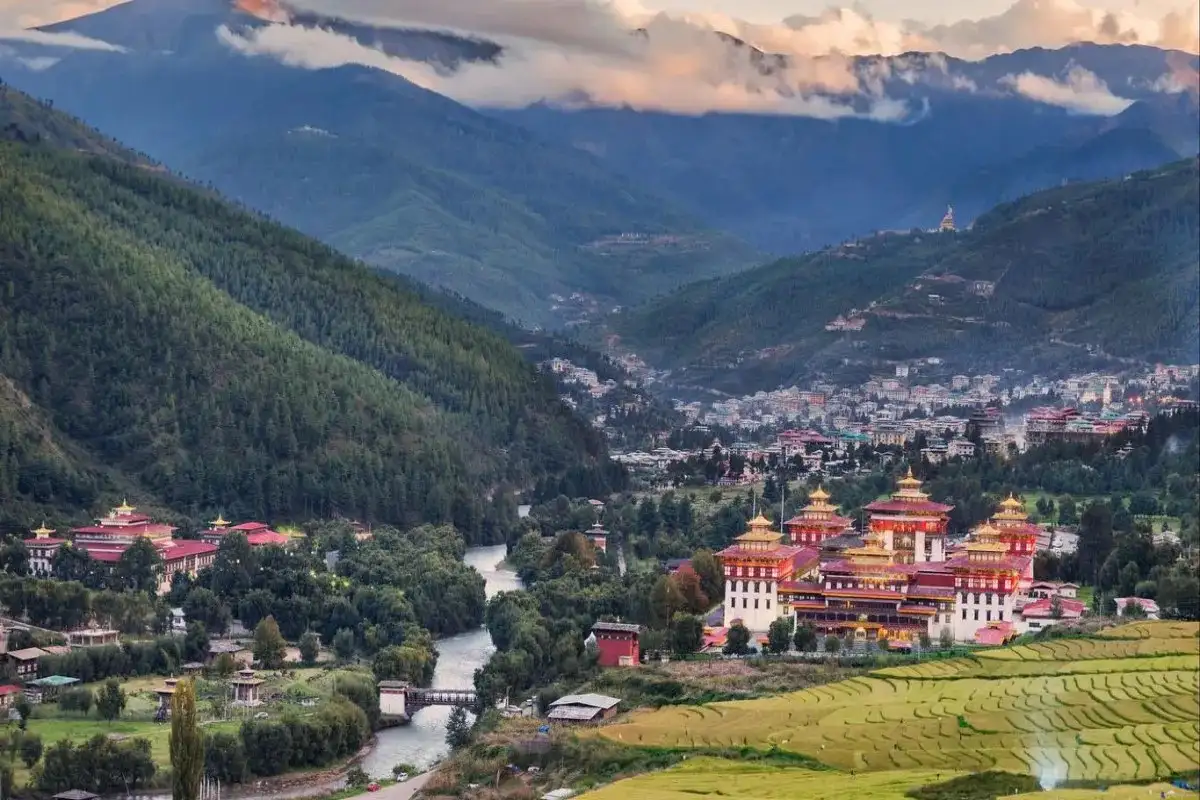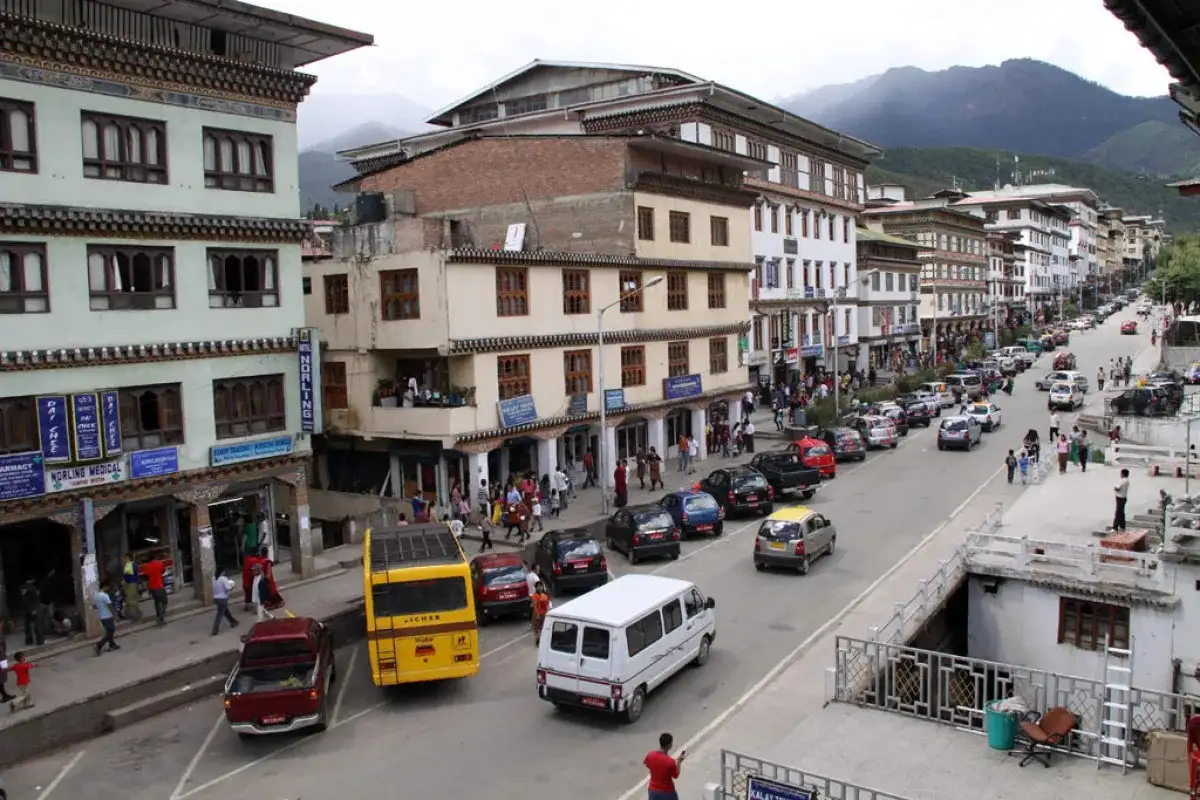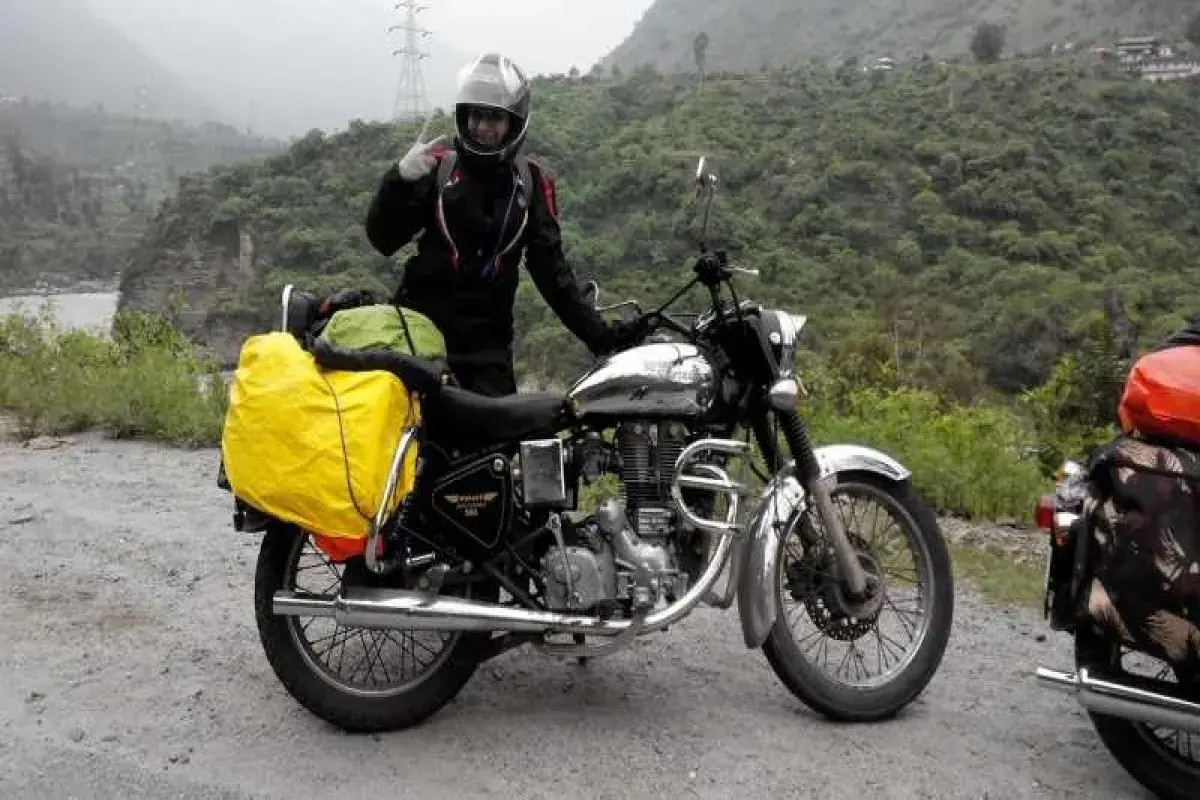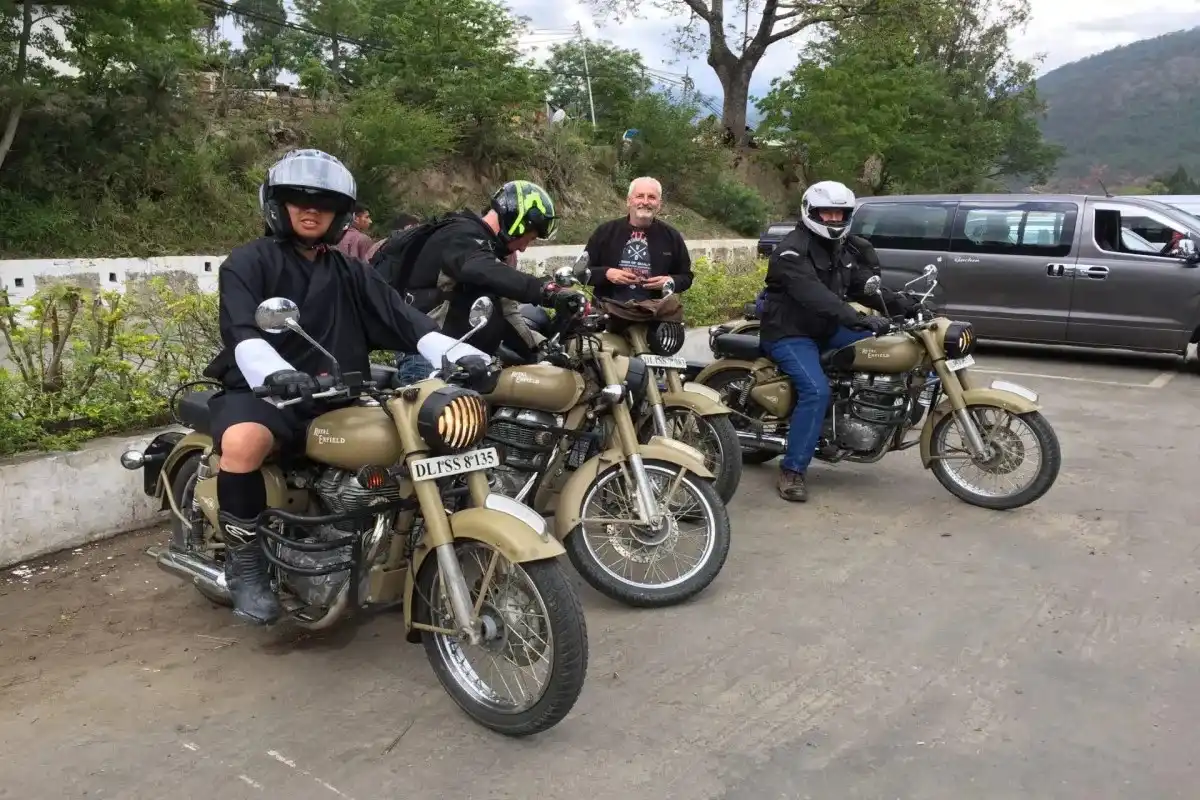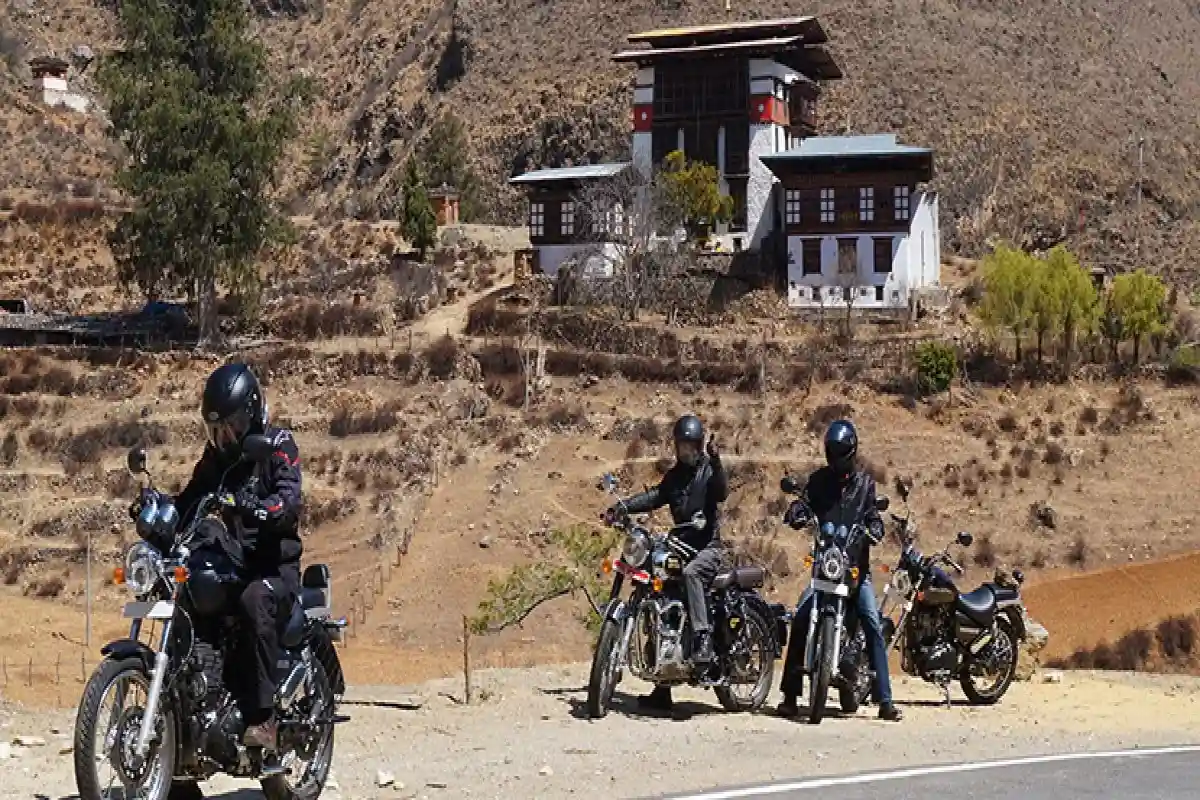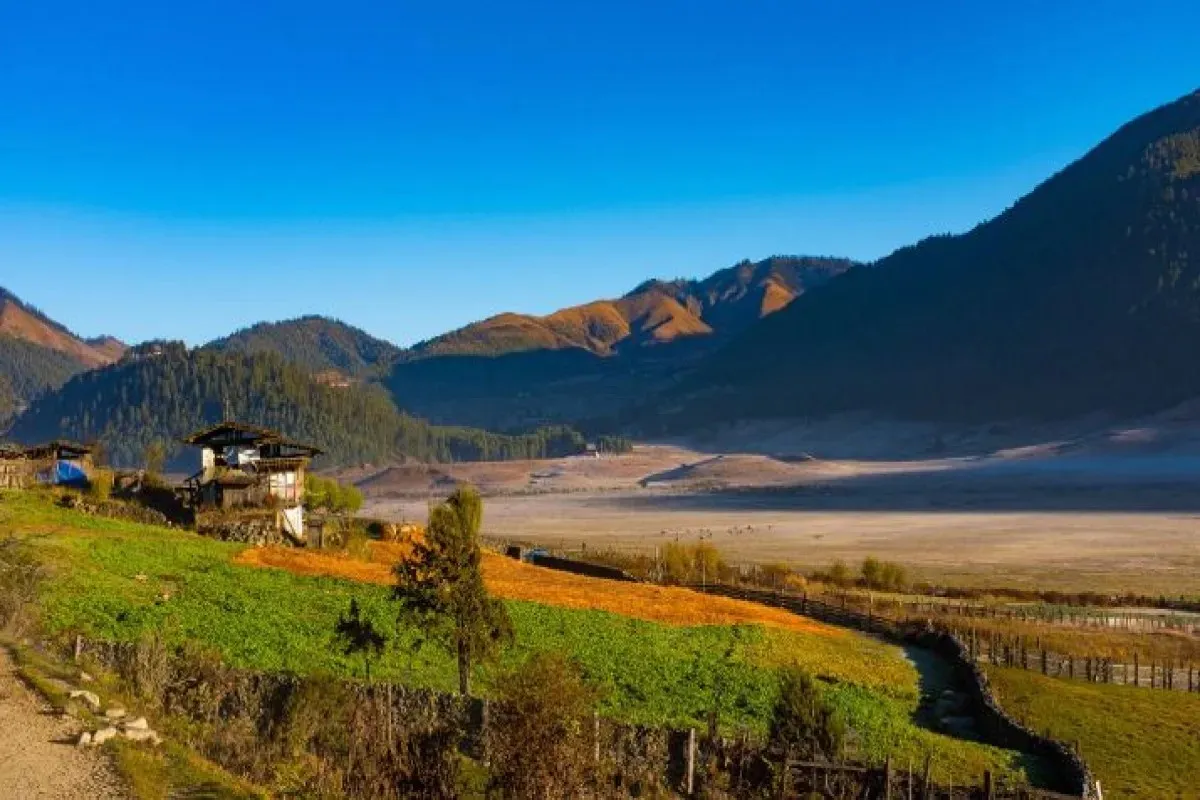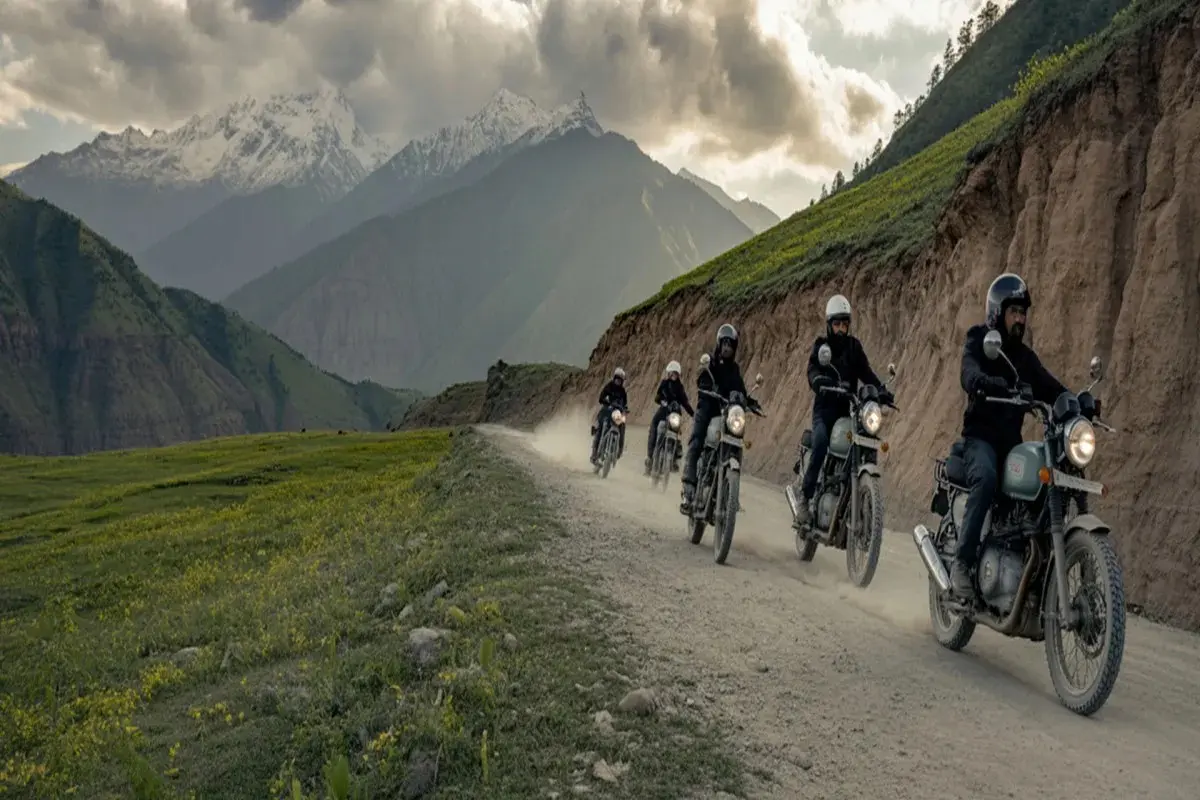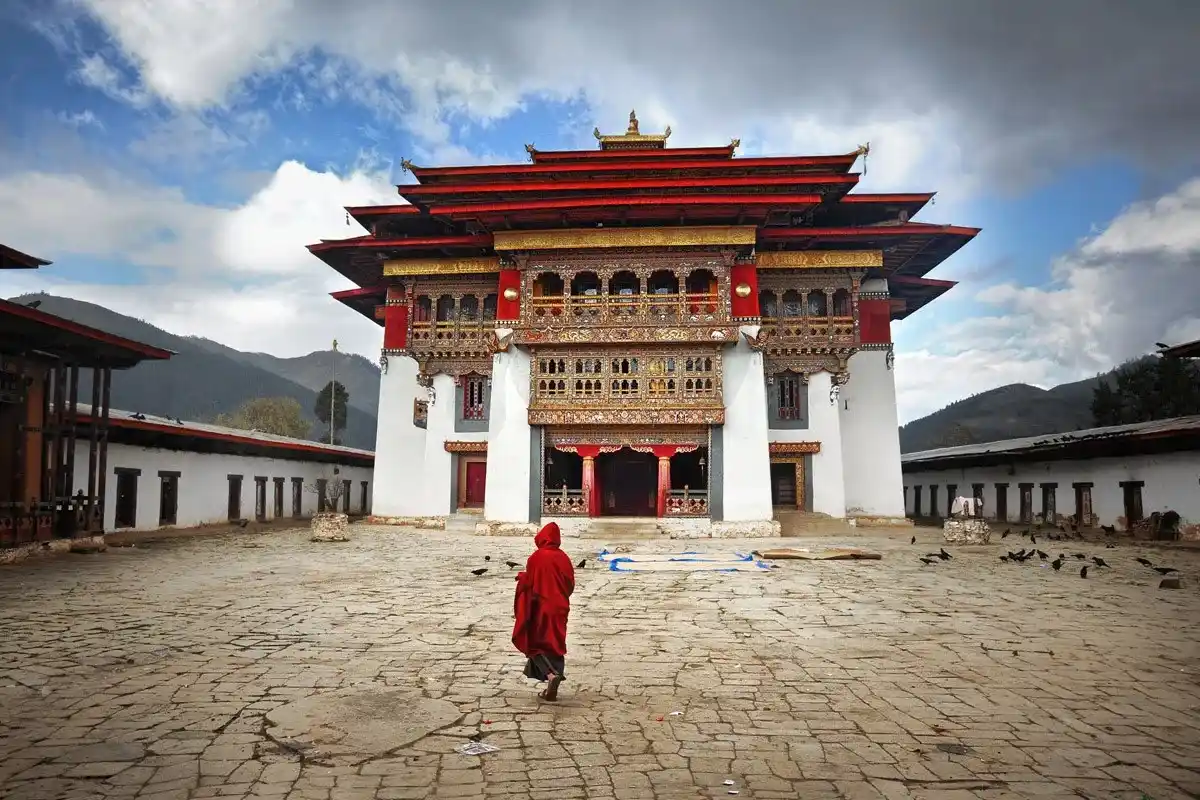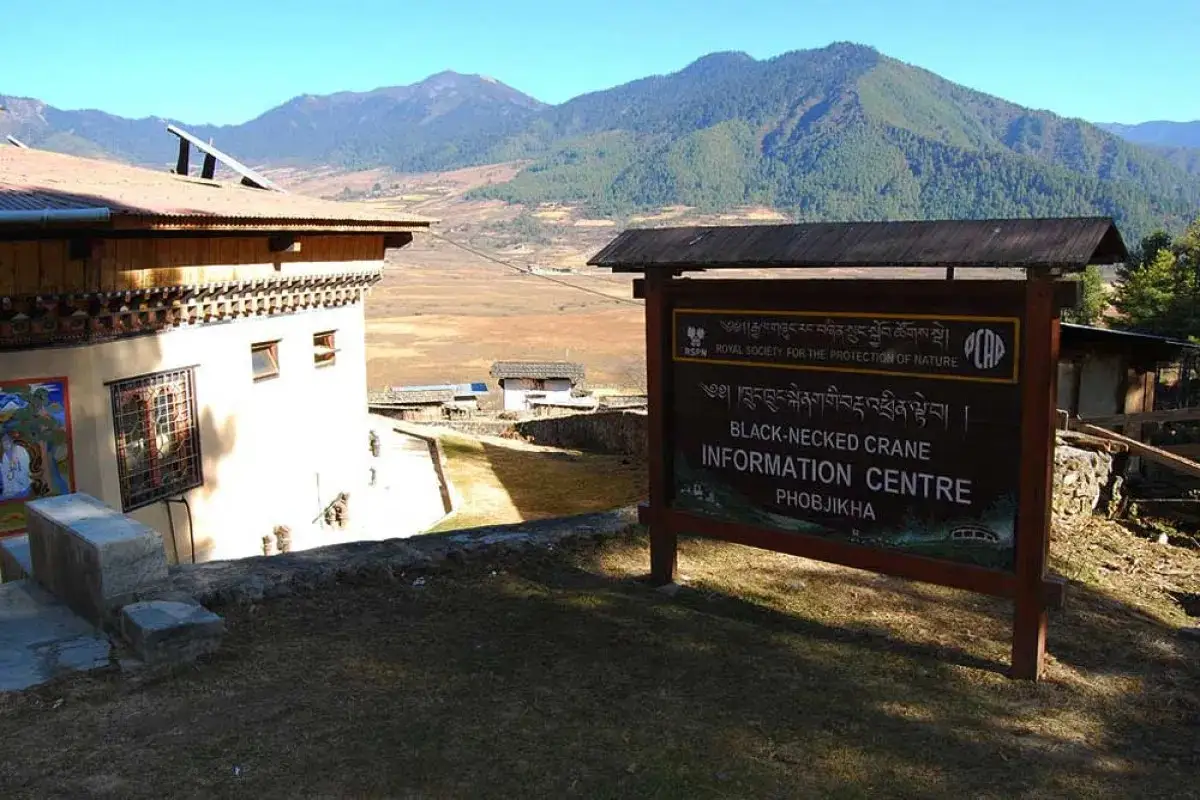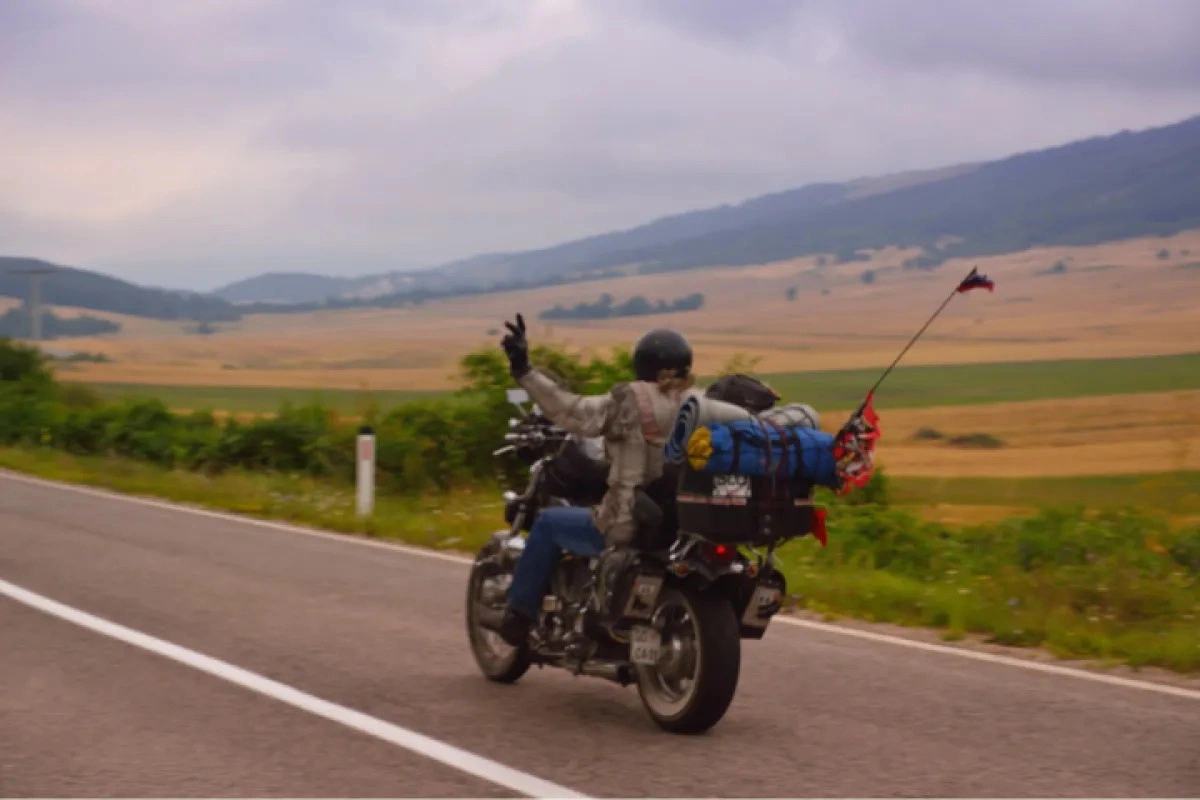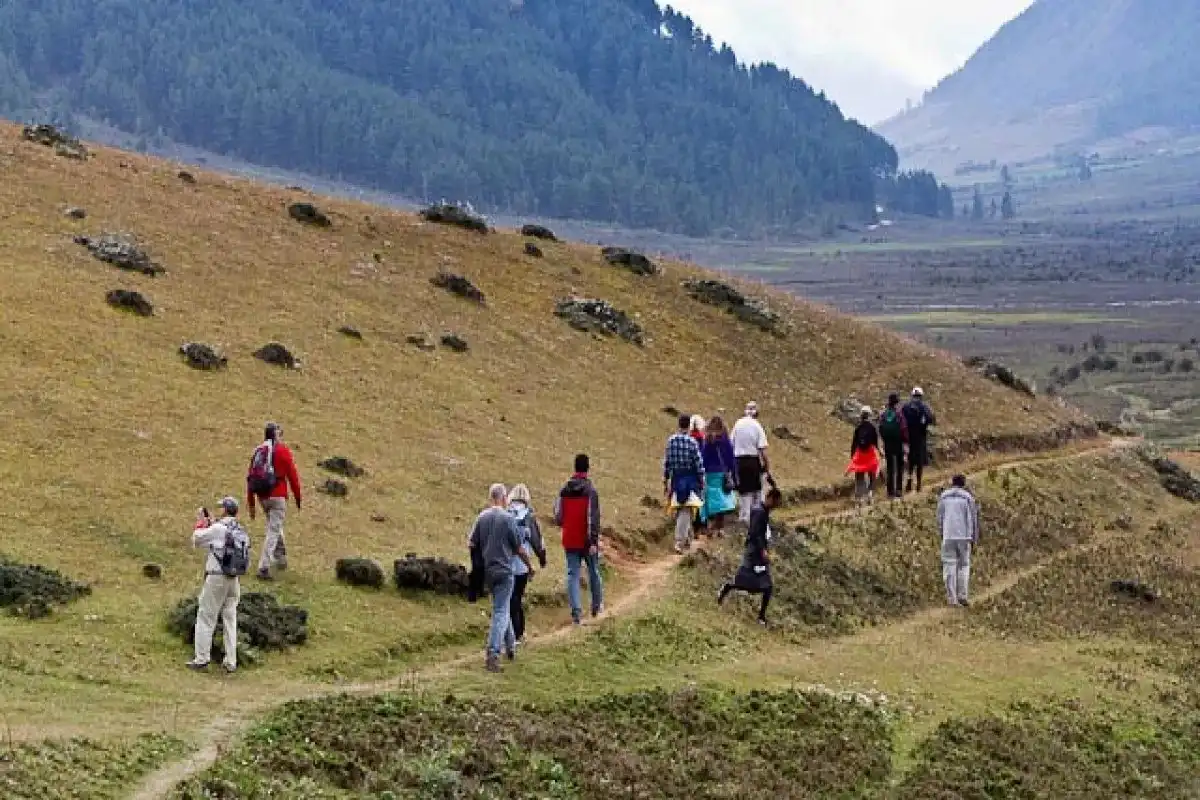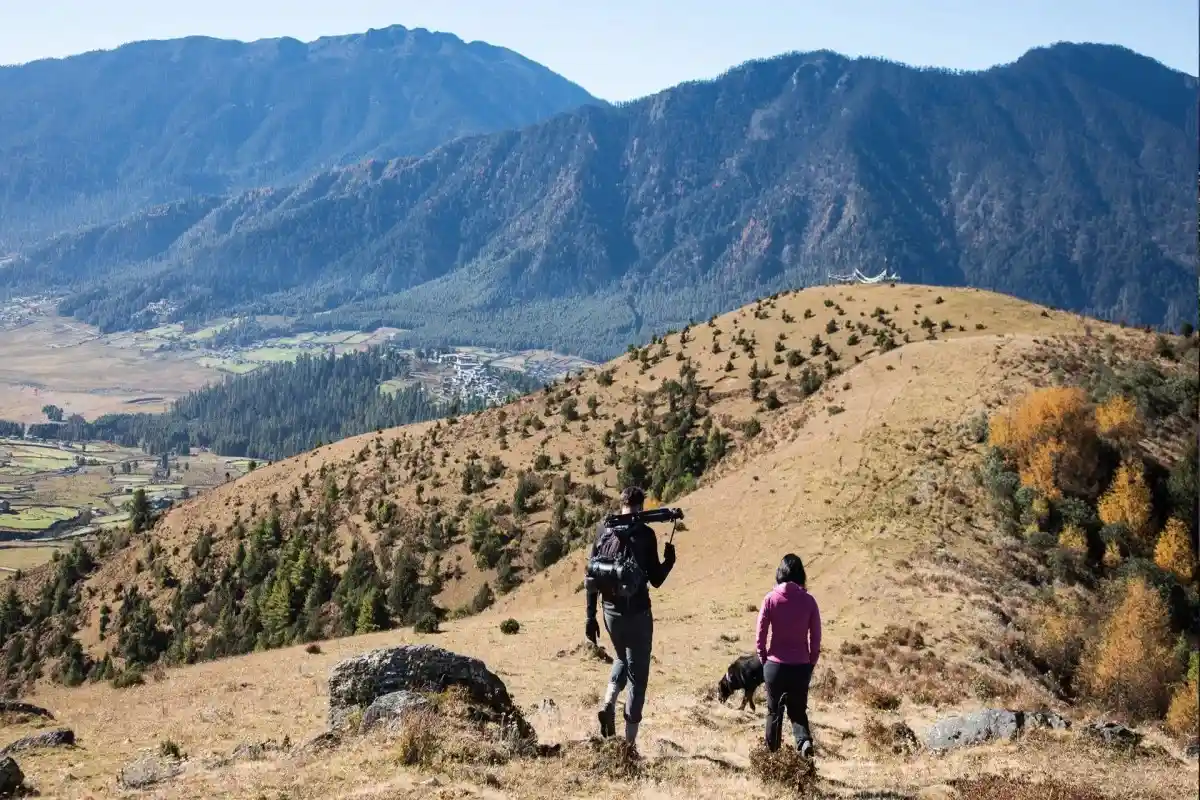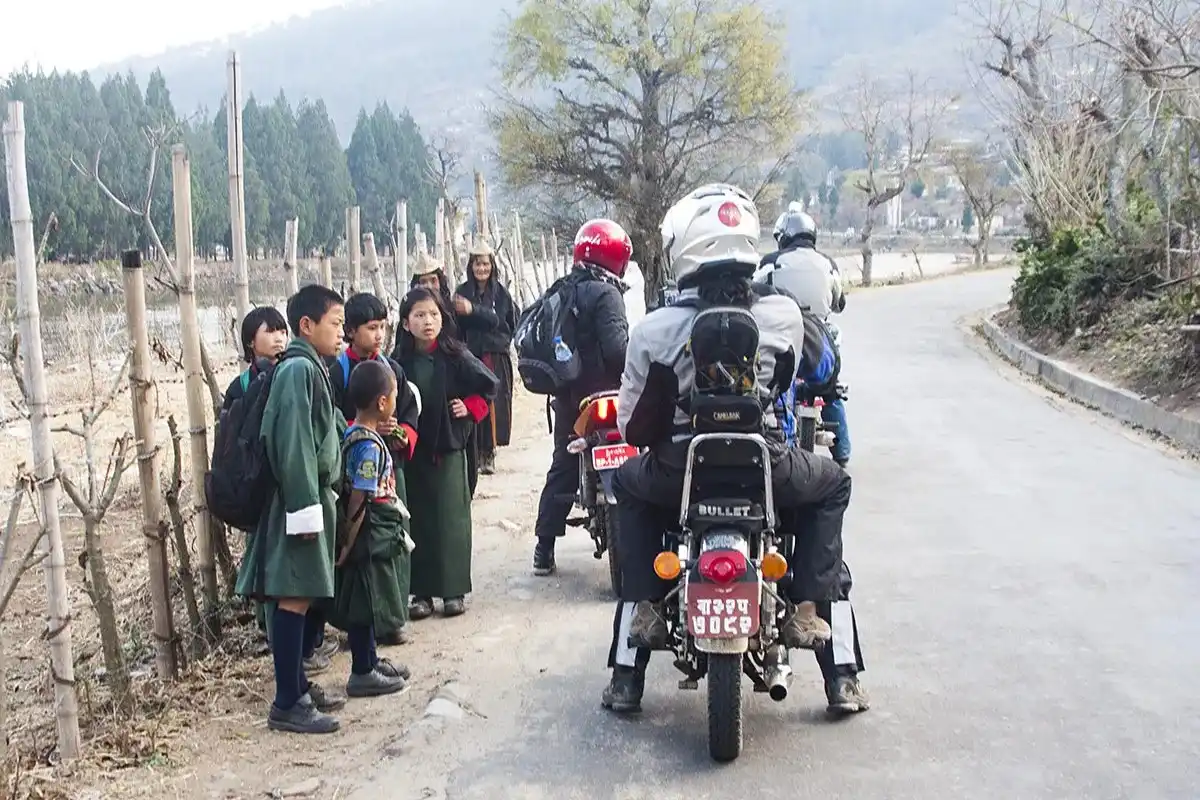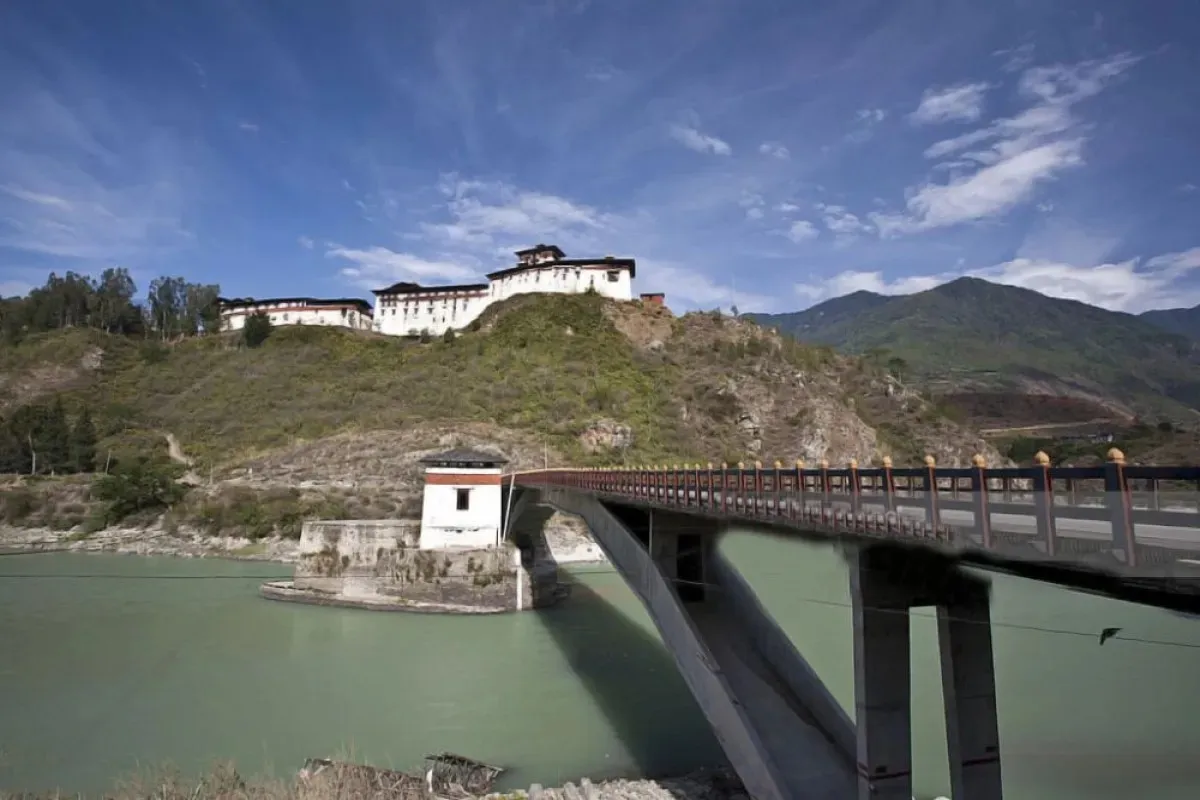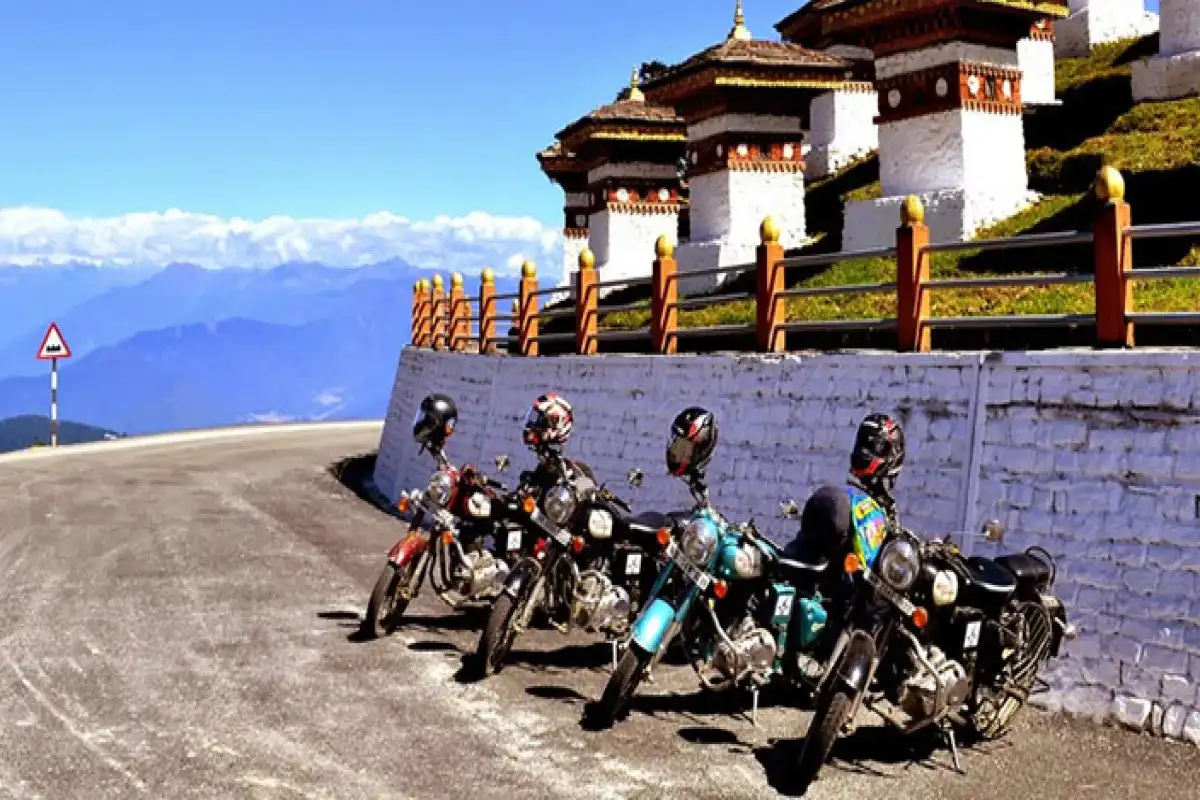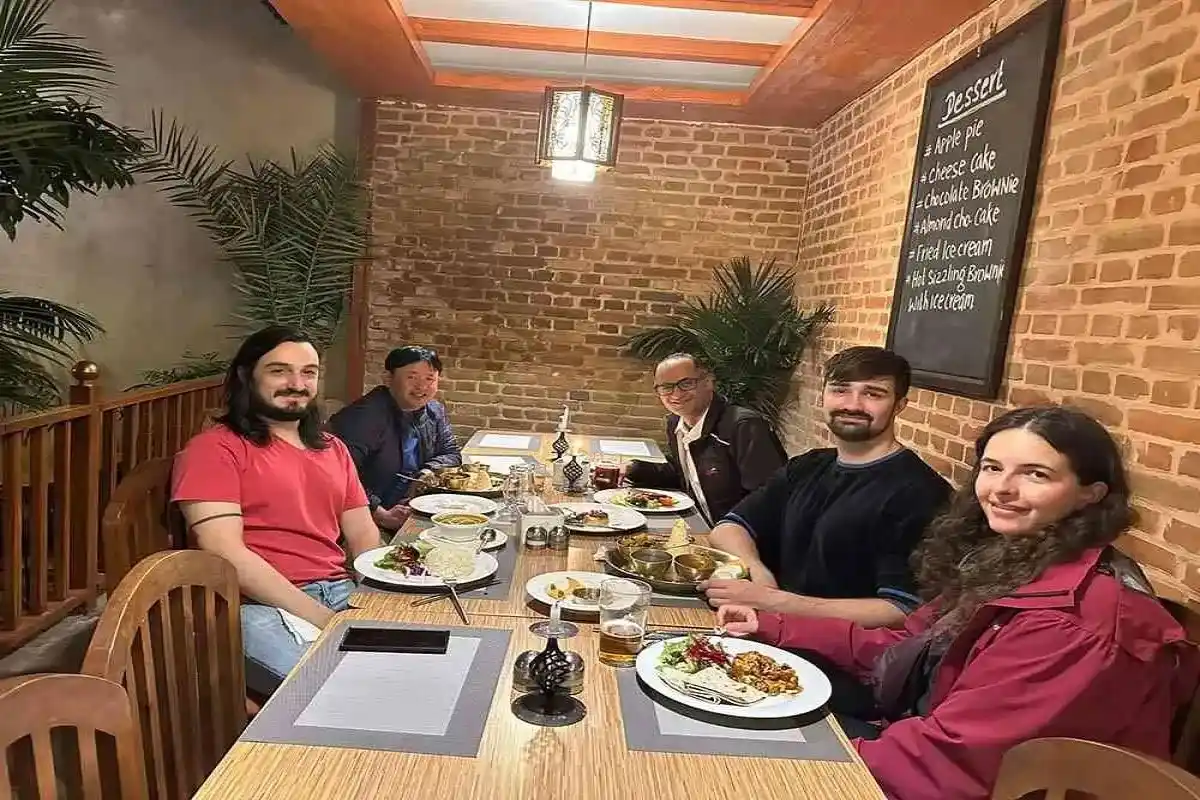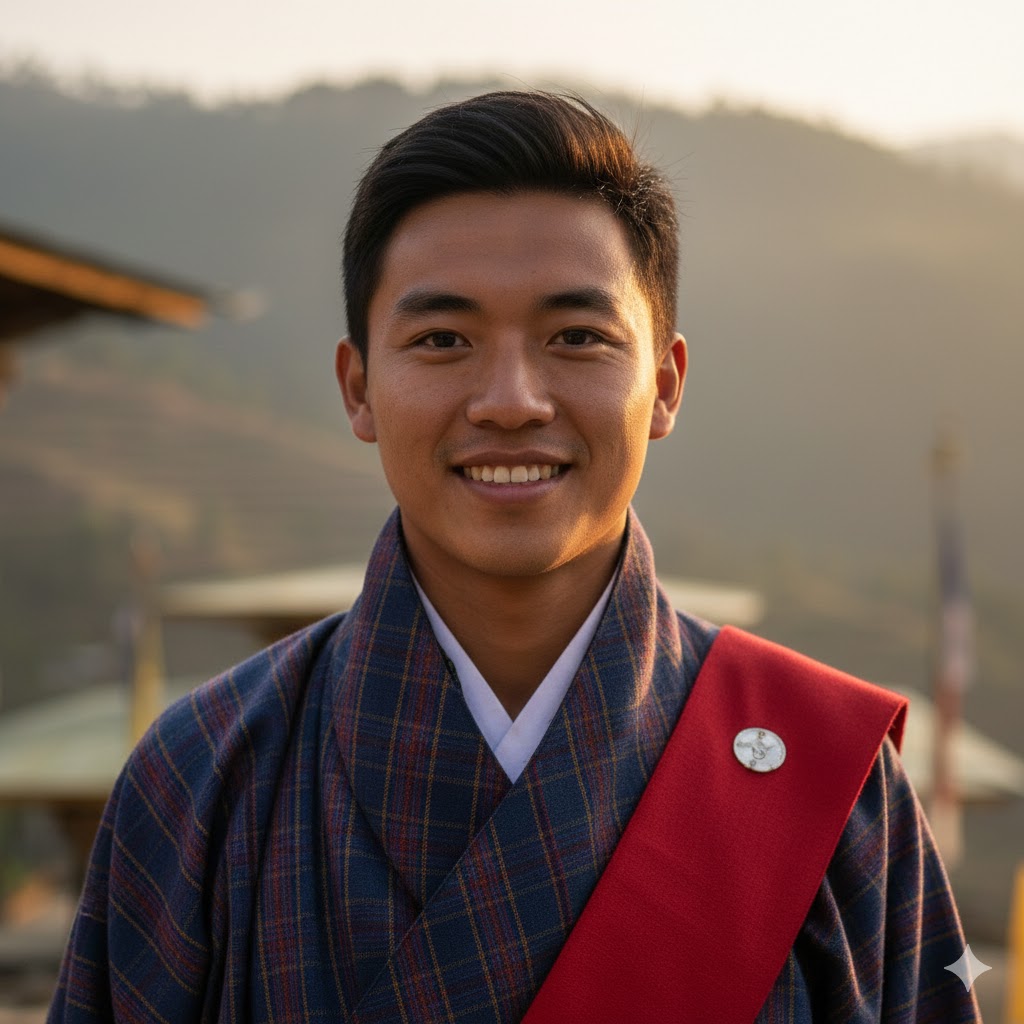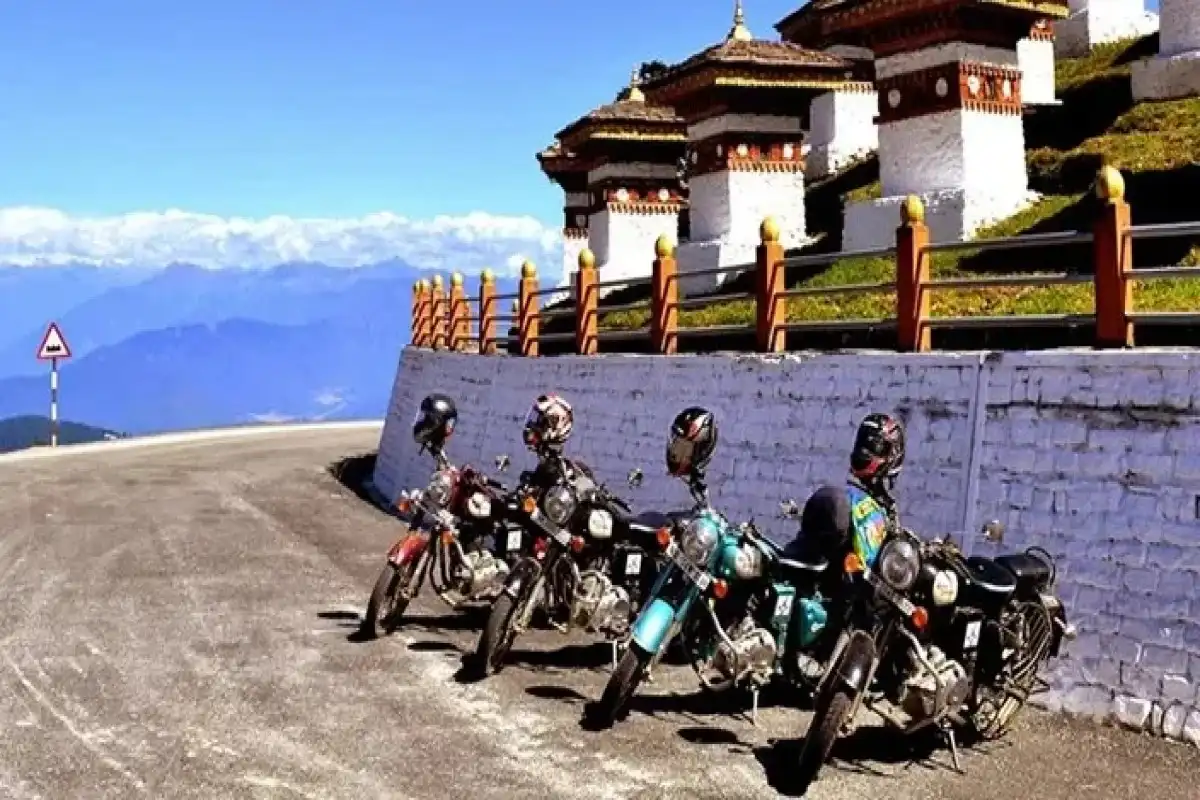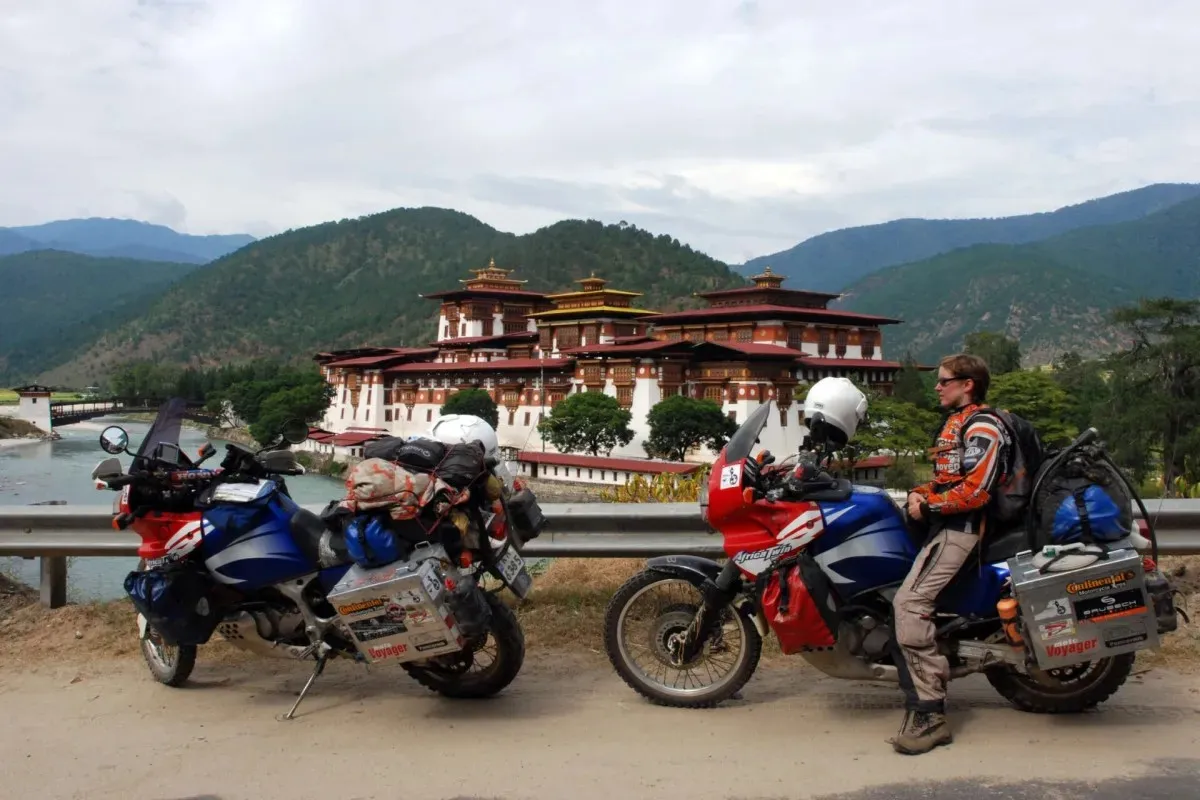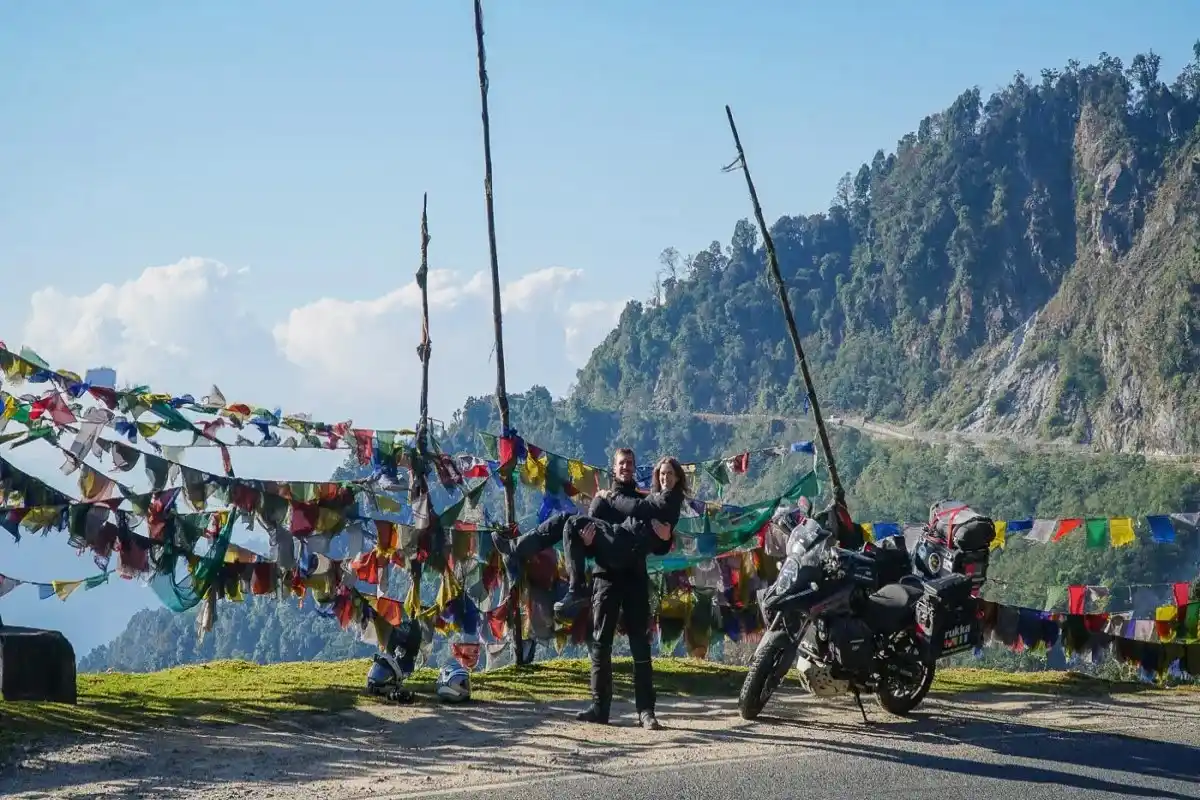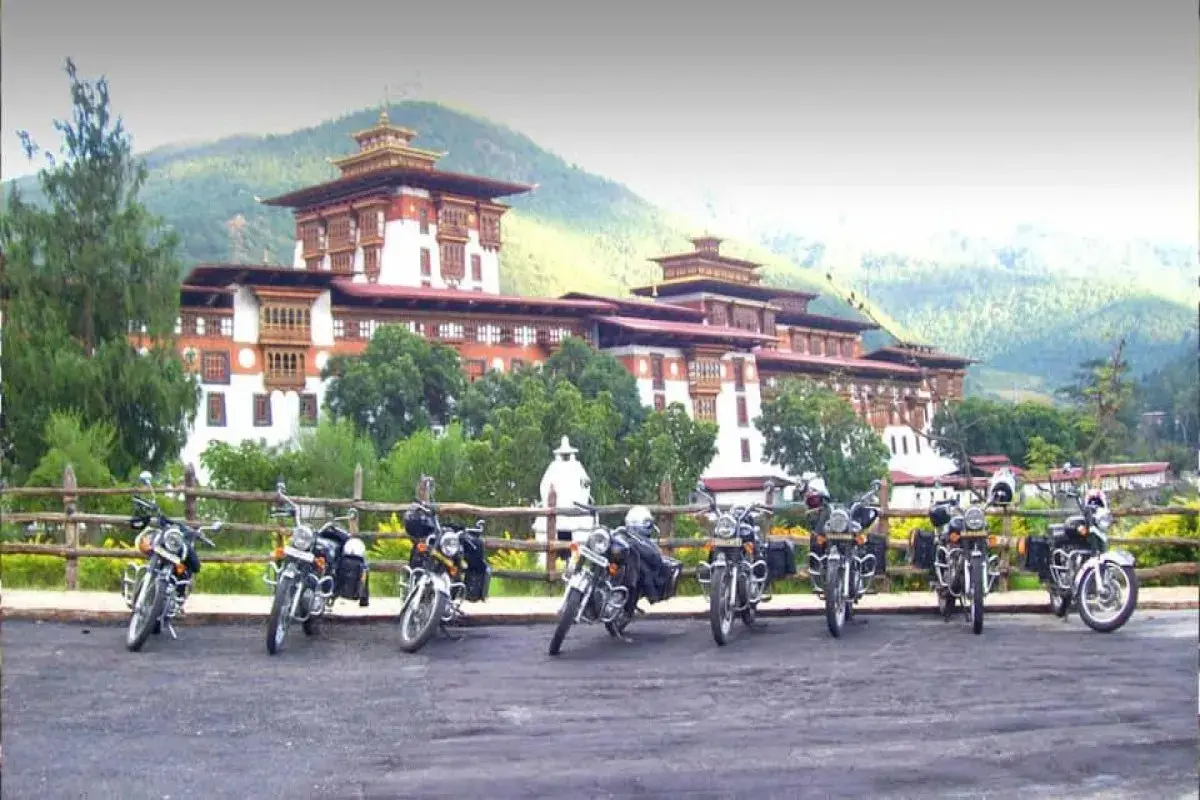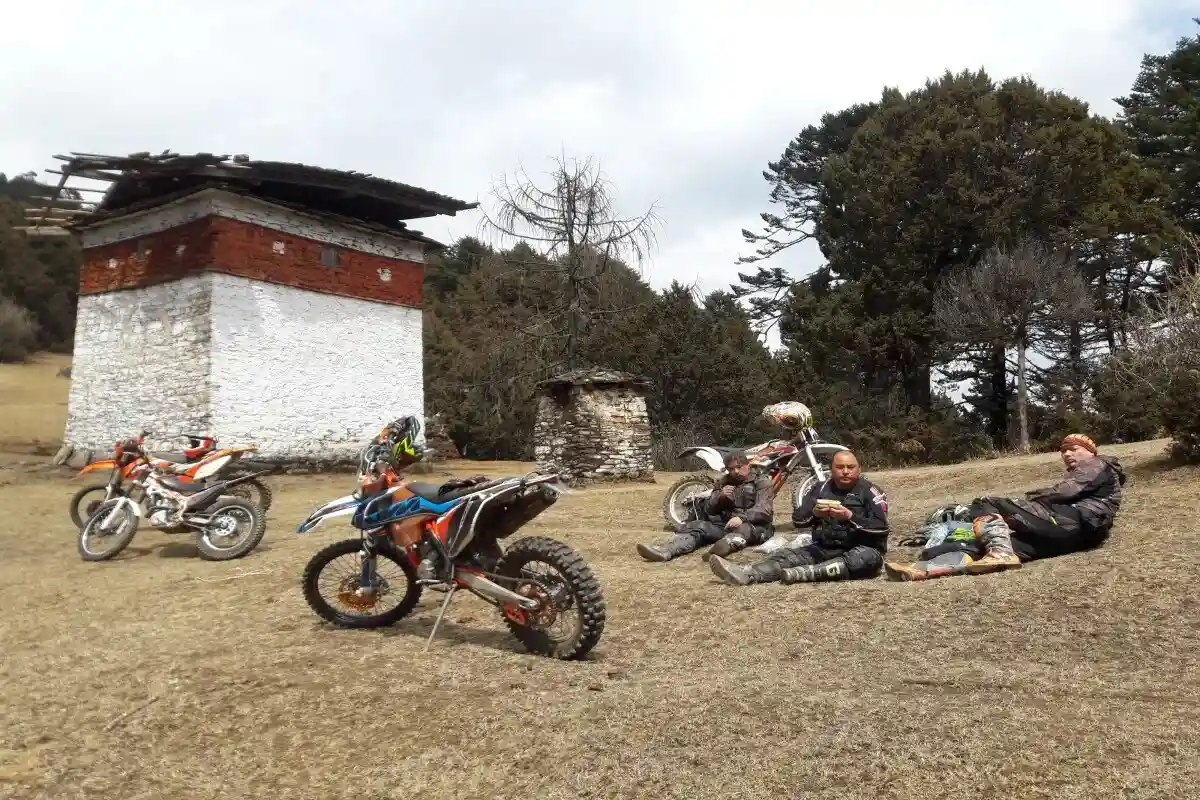Bhutan Extreme Motorbike Rally: Thimphu to Phobjikha Valley - 6 Days
The Bhutan Extreme Motorbike Rally is a journey from Thimphu to Phobjikha Valley. This is specially designed for adventure seekers and people who love to ride. This rally takes participants through beautiful mountains and historic monasteries. It provides a balanced experience of adventure with cultural exploration and natural beauty.
Highlights of the Bhutan Extreme Motorbike Rally
- Conquer Dochula Pass and Chele La Pass
- Embrace the Thrill of Offbeat Adventure Routes
- Explore Punakha Dzong and Paro Dzong
- Wonders of Phobjikha Valley and the Takin Sanctuary
- Local Culture Immersion at Changangkha Monastery and Lhakhangs
Trip Overview
Bhutan is a country situated between the Eastern Himalayas. It gives people an explicit view of beautiful nature and the spirituality present there, with the evergreen tradition of Bhutanese culture. Within this beautiful place lies a golden opportunity, which is the Bhutan Motorbike Rally. The rally starts in Thimphu, which is also the capital city of Bhutan, and you'll get the opportunity to visit a spiritually blessed Phobjikha Valley. This expedition in the Himalayas is not only designed for passionate motorcyclists attempting to conquer altitudes, or solo adventurers on the lookout for rugged trails. Even travel influencers seeking one-of-a-kind content wouldn't want to miss out on this incredible journey.
Highlights of the Bhutan Extreme Motorbike Rally
Bhutan Extreme Motorbike Rally offers the opportunity to Conquer Dochula Pass and Chele La Pass,embrace the thrill of offbeat adventure routes and explore Punakha Dzong and Paro Dzong.
Conquer Dochula Pass and Chele La Pass
One of the best parts of the Bhutan Extreme Motorbike Rally is riding through mountain passes. Dochula Pass is 3,100 meters high and gives a peaceful view of the mountains and wonderful prayer flags with more than 108 small stupas. Furthermore, Chele La Pass is even higher at 3,900 meters. It has sharp turns and open views, making the ride more exciting. These passes give the experience of great views and a fresh mountain feeling.
Embrace the Thrill of Offbeat Adventure Routes
This ride isn’t just about smooth highways or easy roads. This ride takes you on a rollercoaster of adventure. Riders travel through muddy roads to curvy roads, all on this journey, and finally reach quiet temples between valleys. It’s a real adventure where you face rain, slippery tracks, and rocky paths. While getting experience of this adventure, you will be enjoying the lesser-known beauty of Bhutan. These off-road parts aren’t rides; they let you leave behind your daily life stress and help you connect with Bhutan’s wild and natural side.
Explore Punakha Dzong and Paro Dzong
In a country such as Bhutan, spirituality and governance go perfectly with each other. The past monuments, such as Dzongs, have served as both administrative centers and religious places for ages. During this rally, riders will have the opportunity to visit two of Bhutan’s most famous architectural places, which are Punakha Dzong and Paro Dzong. The Punakha Dzong is situated at the place where two rivers meet with each other. The rivers are the Pho and Mo rivers. The Paro Dzong is a place filled with natural beauty and has lots of historical importance. Beyond their visual beauty, they offer a gateway into Bhutan’s old traditions and rituals. Exploring them on a motorbike is an experience only a few can claim.
Wonders of Phobjikha Valley and the Takin Sanctuary
The journey finally ends in the Phobjikha Valley. Phobjikha Valley is a very nice and silent place, which is home to many rare birds and animals. One of the endangered bird species of Black Necked Crane, is found here. They mostly migrate here during the winter season. Similarly, the riders will get the opportunity to observe them from the Black Necked Crane Center. They get exclusive knowledge about them, why they are protected, and what significance they hold to the Bhutanese people. Riders can also visit Gangtey Monastery. Gangtey Monastery is a very old place present since ancient times. It is believed to have been built a long time ago. Riders will also get to stop at the Takin Sanctuary near Thimphu to observe the takins. The takin is known as the national animal of Bhutan. It may look strange at starting, but you'll like watching it. This part of the journey is not only about riding bikes. It also helps people learn about Bhutan, its animals, and its nature.
Local Culture Immersion at Changangkha Monastery and Lhakhangs
Travelling in Bhutan in itself is a special opportunity. During this journey rider will have the opportunity to visit places which hold a lot of importance to Bhutanese people. Riders will get to visit important places like Changangkha Monastery. Changangkha Monastery is a temple situated in Thimphu. Changangkha Monastery is visited by many parents as they get to make wishes about their children here. Riders will also stop at small village temples called Lhakhangs. These are important to the local people. Talking to monks, watching them pray, and joining in their simple customs makes the ride feel special. It helps riders understand how people in Bhutan live and brings them closer to the places they visit.
Thrills Across Bhutan’s Landscapes
The kingdom of Bhutan has incredible and beautiful geographical features, stunning valleys, and even higher-level forested mountain passes. Travelers have the opportunity to bike around or visit herbal farming regions and old monasteries, which are set in exquisite nature. It is also very enjoyable for travelers to bike towards villages through rough terrain as well as smooth and curved roads. Moreover, listening to soft music while riding along pine-covered slopes and valleys enhances every moment for bikers.
Things to do on this tour
We are offered various activities on this tour like scenic motorbike ride over Dochula Pass,nature walk on the Gangtey trail,spotting rare wildlife like Black-Necked cranes.
Scenic Motorbike Ride over Dochula Pass
Your journey will start with a memorable ride starting at Dochula Pass, which is at 3,100 meters in height. Dochula Pass is known for its 108 small chortens. Dochula Pass has been providing riders with awesome views of the Eastern Himalayas. This pass is the starting point for the adventure.
Nature Walk on the Gangtey Trail
In Phobjikha Valley, riders will have the opportunity to walk the nature-gifted Gangtey Trail. This is an easy trail. It covers forests, villages, and nature. It gives you views and a refreshing energy to continue your motorbike ride. It is ideal for those who enjoy bonding with nature.
Experience Local Village Life in Phobjikha
Phobjikha is home to rural communities. It is especially home to those whose way of life has remained the same for many generations. Talking and sharing experiences with local families of this village provides knowledge about Bhutanese customs, architecture, and daily routines. This will help form a deep connection between riders with locals.
Spot Rare Wildlife like Black-Necked Cranes
The riders will visit the Black-Necked Crane Center, where they can get an exquisite view of rare and endangered Black-Necked Cranes. An experience to witness the rare bird will be wholesome during the winter season.
Conclusion
The Bhutan Extreme Motorbike Rally is more than just a ride. It is a journey that brings a sense of importance of nature, culture, and adventure to an individual. From going to mountain passes to the valley, Bhutan always has something unique ready to present to you. Riders get to experience the beauty of Bhutan very closely.
Bhutan is a country situated between the Eastern Himalayas. It gives people an explicit view of beautiful nature and the spirituality present there, with the evergreen tradition of Bhutanese culture. Within this beautiful place lies a golden opportunity, which is the Bhutan Motorbike Rally. The rally starts in Thimphu, which is also the capital city of Bhutan, and you'll get the opportunity to visit a spiritually blessed Phobjikha Valley. This expedition in the Himalayas is not only designed for passionate motorcyclists attempting to conquer altitudes, or solo adventurers on the lookout for rugged trails. Even travel influencers seeking one-of-a-kind content wouldn't want to miss out on this incredible journey.
Highlights of the Bhutan Extreme Motorbike Rally
Bhutan Extreme Motorbike Rally offers the opportunity to Conquer Dochula Pass and Chele La Pass,embrace the thrill of offbeat adventure routes and explore Punakha Dzong and Paro Dzong.
Conquer Dochula Pass and Chele La Pass
One of the best parts of the Bhutan Extreme Motorbike Rally is riding through mountain passes. Dochula Pass is 3,100 meters high and gives a peaceful view of the mountains and wonderful prayer flags with more than 108 small stupas. Furthermore, Chele La Pass is even higher at 3,900 meters. It has sharp turns and open views, making the ride more exciting. These passes give the experience of great views and a fresh mountain feeling.
Embrace the Thrill of Offbeat Adventure Routes
This ride isn’t just about smooth highways or easy roads. This ride takes you on a rollercoaster of adventure. Riders travel through muddy roads to curvy roads, all on this journey, and finally reach quiet temples between valleys. It’s a real adventure where you face rain, slippery tracks, and rocky paths. While getting experience of this adventure, you will be enjoying the lesser-known beauty of Bhutan. These off-road parts aren’t rides; they let you leave behind your daily life stress and help you connect with Bhutan’s wild and natural side.
Explore Punakha Dzong and Paro Dzong
In a country such as Bhutan, spirituality and governance go perfectly with each other. The past monuments, such as Dzongs, have served as both administrative centers and religious places for ages. During this rally, riders will have the opportunity to visit two of Bhutan’s most famous architectural places, which are Punakha Dzong and Paro Dzong. The Punakha Dzong is situated at the place where two rivers meet with each other. The rivers are the Pho and Mo rivers. The Paro Dzong is a place filled with natural beauty and has lots of historical importance. Beyond their visual beauty, they offer a gateway into Bhutan’s old traditions and rituals. Exploring them on a motorbike is an experience only a few can claim.
Wonders of Phobjikha Valley and the Takin Sanctuary
The journey finally ends in the Phobjikha Valley. Phobjikha Valley is a very nice and silent place, which is home to many rare birds and animals. One of the endangered bird species of Black Necked Crane, is found here. They mostly migrate here during the winter season. Similarly, the riders will get the opportunity to observe them from the Black Necked Crane Center. They get exclusive knowledge about them, why they are protected, and what significance they hold to the Bhutanese people. Riders can also visit Gangtey Monastery. Gangtey Monastery is a very old place present since ancient times. It is believed to have been built a long time ago. Riders will also get to stop at the Takin Sanctuary near Thimphu to observe the takins. The takin is known as the national animal of Bhutan. It may look strange at starting, but you'll like watching it. This part of the journey is not only about riding bikes. It also helps people learn about Bhutan, its animals, and its nature.
Local Culture Immersion at Changangkha Monastery and Lhakhangs
Travelling in Bhutan in itself is a special opportunity. During this journey rider will have the opportunity to visit places which hold a lot of importance to Bhutanese people. Riders will get to visit important places like Changangkha Monastery. Changangkha Monastery is a temple situated in Thimphu. Changangkha Monastery is visited by many parents as they get to make wishes about their children here. Riders will also stop at small village temples called Lhakhangs. These are important to the local people. Talking to monks, watching them pray, and joining in their simple customs makes the ride feel special. It helps riders understand how people in Bhutan live and brings them closer to the places they visit.
Thrills Across Bhutan’s Landscapes
The kingdom of Bhutan has incredible and beautiful geographical features, stunning valleys, and even higher-level forested mountain passes. Travelers have the opportunity to bike around or visit herbal farming regions and old monasteries, which are set in exquisite nature. It is also very enjoyable for travelers to bike towards villages through rough terrain as well as smooth and curved roads. Moreover, listening to soft music while riding along pine-covered slopes and valleys enhances every moment for bikers.
Things to do on this tour
We are offered various activities on this tour like scenic motorbike ride over Dochula Pass,nature walk on the Gangtey trail,spotting rare wildlife like Black-Necked cranes.
Scenic Motorbike Ride over Dochula Pass
Your journey will start with a memorable ride starting at Dochula Pass, which is at 3,100 meters in height. Dochula Pass is known for its 108 small chortens. Dochula Pass has been providing riders with awesome views of the Eastern Himalayas. This pass is the starting point for the adventure.
Nature Walk on the Gangtey Trail
In Phobjikha Valley, riders will have the opportunity to walk the nature-gifted Gangtey Trail. This is an easy trail. It covers forests, villages, and nature. It gives you views and a refreshing energy to continue your motorbike ride. It is ideal for those who enjoy bonding with nature.
Experience Local Village Life in Phobjikha
Phobjikha is home to rural communities. It is especially home to those whose way of life has remained the same for many generations. Talking and sharing experiences with local families of this village provides knowledge about Bhutanese customs, architecture, and daily routines. This will help form a deep connection between riders with locals.
Spot Rare Wildlife like Black-Necked Cranes
The riders will visit the Black-Necked Crane Center, where they can get an exquisite view of rare and endangered Black-Necked Cranes. An experience to witness the rare bird will be wholesome during the winter season.
Conclusion
The Bhutan Extreme Motorbike Rally is more than just a ride. It is a journey that brings a sense of importance of nature, culture, and adventure to an individual. From going to mountain passes to the valley, Bhutan always has something unique ready to present to you. Riders get to experience the beauty of Bhutan very closely.
Short Itinerary
Land in Paro, transfer to Thimphu. Meet your bike, attend a short orientation, and prepare for the ride ahead.
Ride through Dochula Pass with stunning mountain views. Reach the serene Phobjikha Valley and relax at your hotel.
Visit Gangtey Monastery and the Black-Necked Crane Center. Learn about local wildlife and culture.
Walk the Gangtey Nature Trail or enjoy a hot stone bath. Visit a local farmhouse for tea and conversation.
Cruise through forests and rural villages. Experience Bhutan’s quiet countryside and scenic landscapes.
Ride back to the city. End your journey with a farewell dinner and cultural show.
Price Includes
- Pick-up and drop-off services
We provide a pick-up service from the airport to the hotel on your arrival day and from the hotel to the airport on the departure day.
- Lunch, Breakfast, and Dinner
All meals during the trek will be provided by the company. However, personal food items like coffee, tea, cold drinks, etc, are not included in the package.
- A guide proficient in English
A certified, English-speaking guide will accompany you throughout the trip. The guide will offer information about the trail, culture, nature, and history, and ensure your safety and a smooth experience.
- Comfortable SUV vehicle
A private SUV will be used for road travel before or after the trek. These vehicles are ideal for Bhutan’s hilly terrain and provide a comfortable ride.
- All types of entry costs
This covers all permit fees, monument entrance fees, park fees, and any other official charges required for trekking or sightseeing activities during the tour.
- Professional Drive
We ensure a safe and smooth drive during your tour. We have licensed and experienced drivers for that.
- Sleeping bag and tent
Quality sleeping bags and tents are provided for your comfort and warmth during the camping nights on the trek. So, you don’t have to worry about buying a new one.
- Farewell dinner
A special farewell meal, typically arranged in a traditional restaurant, is offered at the end of the tour to celebrate the journey and thank the participants.
- Evening Tea/coffee with snacks
Each evening, you’ll be served tea or coffee along with light snacks like biscuits and popcorn.
- Drinking Water
Safe and clean drinking water is provided throughout the trek.
- Pick-up and drop-off services
We provide a pick-up service from the airport to the hotel on your arrival day and from the hotel to the airport on the departure day.
- Lunch, Breakfast, and Dinner
All meals during the trek will be provided by the company. However, personal food items like coffee, tea, cold drinks, etc, are not included in the package.
- A guide proficient in English
A certified, English-speaking guide will accompany you throughout the trip. The guide will offer information about the trail, culture, nature, and history, and ensure your safety and a smooth experience.
- Comfortable SUV vehicle
A private SUV will be used for road travel before or after the trek. These vehicles are ideal for Bhutan’s hilly terrain and provide a comfortable ride.
- All types of entry costs
This covers all permit fees, monument entrance fees, park fees, and any other official charges required for trekking or sightseeing activities during the tour.
- Professional Drive
We ensure a safe and smooth drive during your tour. We have licensed and experienced drivers for that.
- Sleeping bag and tent
Quality sleeping bags and tents are provided for your comfort and warmth during the camping nights on the trek. So, you don’t have to worry about buying a new one.
- Farewell dinner
A special farewell meal, typically arranged in a traditional restaurant, is offered at the end of the tour to celebrate the journey and thank the participants.
- Evening Tea/coffee with snacks
Each evening, you’ll be served tea or coffee along with light snacks like biscuits and popcorn.
- Drinking Water
Safe and clean drinking water is provided throughout the trek.
Price Excludes
- International Airfare
- Visa Charges and Insurance
- Individual expenditures
- Additional-day lodging
- Laundry and telephone expenses
- Tips for the guide and the porter
- International Airfare
- Visa Charges and Insurance
- Individual expenditures
- Additional-day lodging
- Laundry and telephone expenses
- Tips for the guide and the porter
Bhutan Extreme Motorbike Rally: Thimphu to Phobjikha Valley Itinerary
When you arrive at Paro International Airport, you'll be greeted by a local representative. You'll then be taken to the capital city of Bhutan. After you check into the hotel, after relaxing for a while, you will need to see your motorcycle for the journey ahead. There, we have organised a short orientation about your support time, and you'll get to know your fellow riders for the journey ahead. The session will have a detailed overview of the rally route, road safety regulations in Bhutan, and technical knowledge of your motorbike. You’ll also complete a gear check and receive a safety briefing to make sure you are perfectly ready for the adventure ahead.
The journey starts early today. Today, you'll get to travel from beautiful Thimphu to magical Phobjikha Valley. You'll cover approximately 70km on this day. You'll get the wonderful experience of visiting Douchla Pass, which is at 3,100 meters high. You'll get to see the exclusive views of snow-covered mountains on this day. These roads take you through beautiful forests and small villages. This experience gives you an overwhelming view of Bhutanese rural life along the way. After coming to Phobjikha Valley, you can end your day by relaxing at the hotel.
You'll begin your day with a warming breakfast. Today you'll have to visit two places. Your first stop will be Gangtey Monastery. Gangtey Monastery is a 17th-century Buddhist monastery situated in the hills. This offers you beautiful scenery of the valley. Next, you'll go to visit the Black-Necked Crane Center. This centre provides you with information about the endangered birds, it's conservation measures, and their importance. You can witness the cranes in their natural habitat. It is an inspiring moment for wildlife lovers and photographers.
Today is about taking rest and care. You can take a rest or go to explore some more places in the Phobjikha Valley. You can walk down the Ghangtey Natural Trail if you want. It is an easy path to trail and it takes you through forests, fields, and a few quiet villages. If you want to know more about people living there, you can stop by some of the farmhouses to learn about them. They will be very happy and welcoming to serve you a cup of tea and the insights about Bhutanese people. Furthermore, if your body feels tired from riding, a hot stone bath is a great way to relax.
After one day of rest in Phobjikha Valley, you'll need to go to the next place. Your next destination will be central Bhutan. Today you'll ride to Wangdue Phodrang. Wangdue Phodrang provides riders with a completely different experience. It will take you around the scenic forest and the places in there. The place reveals how diverse Bhutan truly is. You'll get a chance to experience terraced fields and grazing cattle. One of the unique aspects of this ride is the chance to stop at remote villages. During this, you can interact with the locals there and observe life away from the city and chaos. After reaching, you'll get to relax at the hotel. Afterwards, if time allows, you can visit nearby temples.
This is the final day of the rally. In the morning, you'll depart from Wangdue and head back towards Thimphu. This route gives you beautiful scenes to watch and gives you the last chance to capture them on this journey. From a rural area, you'll suddenly take a turn to the city full of buildings. After reaching Thimpu, you'll return your motorbikes and gather for the official closing ceremony. This will mark the official end of this rally. The celebrations continue in the evening with the farewell dinner and cultural performances. This will make your journey end with more emotional impact.
Know Before You Travel
-
The best time for joining the Bhutan Extreme Motorbike Rally:
is between March to May and September to November. These months have mild temperatures, dry roads, and clear skies, perfect for travelling. You can enjoy the beautiful views of Bhutan without any disturbance in these months. The months of June to August can cause slippery and blockage of roads, and during December to February, the temperature might be freezing cold in the Himalayan region, so it will not be perfect for riding.
Bhutan Extreme Motorbike Rally: Thimphu to Phobjikha Valley Map
Download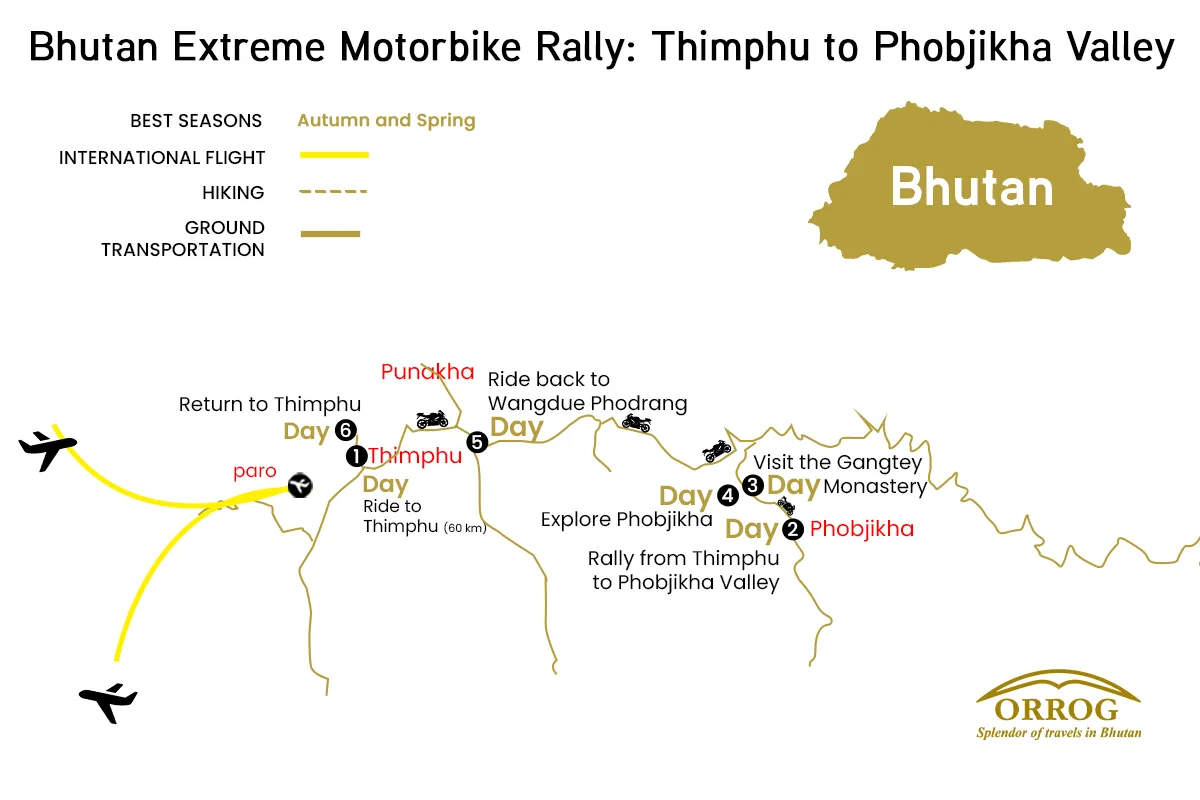
Bhutan Extreme Motorbike Rally: Thimphu to Phobjikha Valley Video
FAQs for Bhutan Extreme Motorbike Rally: Thimphu to Phobjikha Valley
The road from Thimpu to Phobjikha valley is mostly an easy ride on highways. You'll ride through Douchla Pass, which has lots of curves. While riding this path, beginners should be more careful.
Yes, there will be a support vehicle that travels with the group. It carries all the necessary materials needed, such as tools, luggage, fuel, and a trained mechanic. Mechanics are always ready to assist you through the ride.
If your bike breaks down, the mechanic will try to fix it, as we have mechanics ready with us all the time. If that’s not possible, your bike will go in the support truck. We’ll make sure to arrange something for you for the remaining ride. In case of any emergency, help will be arranged as soon as possible.
Yes, most places in Phobjikha have hot water and room heaters. But due to some circumstances somewhere, it might not be present, so don't forget to bring your warm clothes.
Yes, the medical team will accompany you all the way. Basic first-aid kits are always ready, but in case of prescribed medicine for your condition, that needs to be carried by you.
The national language is Dzongkha, but many Bhutanese also speak English. If you speak English and are worried about communicating with the local people, you will have your guide as a translator.
Yes, all licensed tour guides in Bhutan are required to speak fluent English. Many are also trained in other languages such as German, Japanese, or French. Communication during the trip will be smooth and clear in English.
Most signboards, tourist maps, and information brochures are written in English, especially in tourist destinations like Paro, Thimphu, and trailheads. Directional signs along routes are often labeled in both Dzongkha and English.
No, learning Dzongkha is not at all needed for the trip, but knowing a few basic words like "Kuzu zangpo la" (Hello) or "Kadrinche la" (Thank you) is a good way to interact with the locals.
Language barriers are minimal, as your guide will handle all communication with locals and support staff. Your guide will translate for you during your interaction with the locals.
You need a visa and all necessary permits for your trip. These documents can not be received on the day of your arrival, so they must be processed before coming here. After you book a trip with us, we will manage these papers for you. Your Bhutan visa is arranged by Orrog as part of the package.
The main way to come to Bhutan is through Paro International Airport, which is well-connected to cities like Bangkok, Delhi, Kathmandu, and Singapore. Most people arrive by air, but if you plan to come via road, you can enter through Phuentsholing, located on the southern border with India, which is the most commonly used entry point.
It is recommended to apply for the visa at least 20 days before your planned departure date so that there is enough time for processing your Bhutan visa, finalizing your itinerary, and arranging your guides and transportation. Although visa processing itself is relatively fast once payment is received, early preparation helps avoid delays and ensures availability, especially during peak seasons (spring and autumn).
You don’t require a passport-size photo for the visa, but it is wise to carry at least 2–4 recent passport-sized photographs during your trip. These may be needed for local permits, registration, or when applying for a local SIM card upon arrival in Bhutan.
Yes, you can lengthen your stay in Bhutan either before or after your trip. Bhutan’s tourism model requires visitors to pay a Sustainable Development Fee (SDF) and a daily package cost, so any extra days will involve additional charges. Extensions are a great opportunity to explore cultural sites in Paro, Thimphu, or even add another short trip or day hike.
Yes, Bhutan requires full tour payment in advance before your visa can be processed and issued. The government of Bhutan regulates this policy to ensure that all travel arrangements are confirmed through a licensed Bhutanese tour operator. We are a licensed tour operator that ensures you have everything you need for a trouble-free trip.
Any personal expenses are not covered in the package like:
- Tips for your guide and other staff
- Bottled drinks and snacks(personal expense)
- Souvenirs or local crafts
Tipping is not mandatory, but it is a widely appreciated gesture and a customary way to show gratitude for good service. The tipping guideline would be to give USD 5-10 per day as a tip for the guides and other staff.
Credit cards are easily accepted in major cities like Paro and Thimphu. But in remote areas, you may not have access to a card or an ATM. So, it is best to carry some cash before heading for the trip.
Paro International Airport is the only international airport in Bhutan. It is well connected by flights from cities like Bangkok, Delhi, Kathmandu, and Singapore.
Yes, airport pick-up and drop-off are included in the package. We will have your guide and driver meet you at the airport and transport you to your hotel.
While Bhutan's roads are mostly paved, some parts are narrow, winding, and occasionally affected by weather. However, we ensure your travel is safe, well-maintained, and driven by an experienced professional throughout the journey.
The Bhutanese Ngultrum is used in Bhutan. All local transactions during the trip will be in BTN.
US Dollars (USD) are generally accepted at larger hotels, souvenir shops, and tour operators, particularly in Paro and Thimphu. However, it’s advisable to convert your currency to BTN for general purchases in rural areas. Other currencies like the Euro or the Pound are not commonly accepted directly.
No, credit or debit cards are not accepted on the trip, as it takes you through remote regions with no banking or electronic payment access. All trip-related payments like accommodation, meals, permits, etc, are paid in advance.
You can exchange foreign currency at the Paro International Airport, at banks, or through licensed money changers in cities like Thimphu and Paro. It's best to exchange enough cash before heading out on the trip.
To greet people, you can greet with locals “Kuzu zangpo la” (Hello) by performing a slight bow. Most common greetings include physical greetings, such as shaking hands less visible, especially in rural areas.
Yes, but remember to seek permission, especially when taking photos of monks, locals, or temples. Please note that clicking photos is not allowed at most religious sites.
Visitors should dress modestly and respectfully. This means:
- Covering shoulders and knees
- Removing hats and sunglasses
- Not wearing shorts or sleeveless tops
This applies to both men and women.
Yes, Bhutanese society is deeply rooted in Buddhism and tradition. Here are some key taboos:
- Do not point your feet at people or sacred objects
- Never touch anyone on the head, as it is considered sacred
- Walk clockwise around temples, stupas, and religious monuments
- Avoid public displays of affection
While gifts are not expected, they may be accepted graciously if given with respect. It is advisable to consult with the guide before giving out anything.
Bhutan typically uses Type C, Type D, and Type G electrical outlets. Standard safe voltage is 230V and frequency is 50Hz; therefore, ensure that your equipment is compatible with this voltage.
Indeed, it is highly advised to take along a universal travel adapter, particularly one to fit a variety of types of plugs, because plugs can be different in a hotel or a guesthouse.
Bhutan follows Bhutan Time (BTT), which is UTC/GMT +6 hours. This time zone remains consistent throughout the year.
No, Bhutan does not observe daylight saving time. The country maintains the same time year-round.
Bhutan is 30 minutes ahead of India. For example, 12:00 PM in India is 12:30 PM in Bhutan.
Yes, souvenirs can be bought in Paro or Thimphu before or after the trip.
Some popular souvenirs include hand-woven textiles (kira and gho fabric), prayer flags, thangka (religious scroll) paintings, handmade paper products, traditional masks, and Buddhist artifacts.
You can do some gentle bargaining in local street markets. However, in government-run shops and fixed-price stores, prices are usually non-negotiable.
Yes, you can easily purchase a SIM card upon arrival in Bhutan. We will
No, internet access is not available during the trip. However, Wi-Fi is available in hotels in Paro and Thimphu before and after the trip.
We provide well-maintained bikes for rent. You can also bring your own bike with the proper permits.
Helmets are provided by us, but you’re encouraged to bring your own riding jacket, gloves, boots, and pants for the best fit and protection. We also offer full gear rental service in case you don’t want to carry yours.
Yes, a backup vehicle will follow the group, carrying luggage, spare parts, a mechanic, and first-aid supplies.
Roads vary from well-paved highways to gravel and rugged mountain routes. You should be confident in handling a bike on mixed terrain.
You will typically ride for 4–7 hours per day with breaks for sightseeing, meals, and photography.
Yes, Bhutan has relatively low traffic and cautious drivers. However, due to winding roads and changing weather, caution and skill are essential.
A trained mechanic travels with the group for technical issues. In case of a medical emergency, first aid is available, and evacuation can be arranged if necessary.
Essentials include layered clothing, rain gear, riding boots, sunglasses, sunscreen, a reusable water bottle, and personal medication.
You should carry a well-fitting helmet, an armored jacket, gloves, protective pants, and riding boots for comfort and safety while driving along the mixed terrain.
The package includes bike rental, fuel, all accommodations and meals, guide, support vehicle, mechanic, entrance fees, permits, and airport transfers.
It’s recommended to book at least 2–3 months in advance, especially for group rides or during popular seasons like spring and autumn, because of a comparatively larger number of travellers.
Reviews & Ratings
-
Guarantee -
Thimphu,Bhutan -
975+17160228
Ready to Explore Bhutan?
Start your journey today and discover the magic of Bhutan with our expert guides and carefully crafted tours.
Book This Trip
-
No booking or credit card fees -
Best price guarantee -
Full customize trip
Ask a Question
Feel free to ask us anything about this tour. A travel expert will then get back to you as soon as possible
Ready to Explore Bhutan?
Start your journey today and discover the magic of Bhutan with our expert guides and carefully crafted tours.
